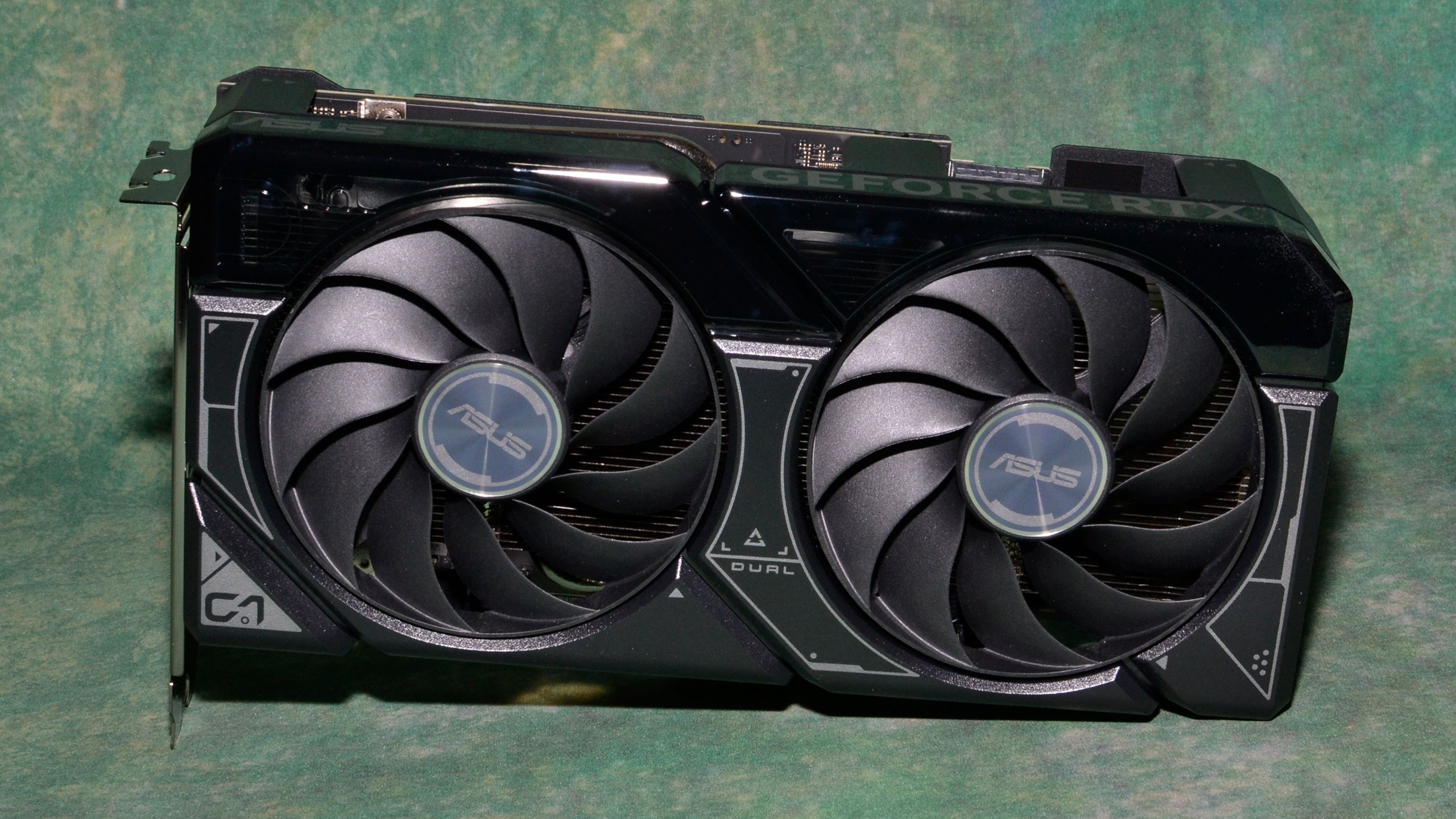Why you can trust Tom's Hardware
Stepping up to higher resolutions can be a bit of an issue with the RTX 4060. The 8GB VRAM is certainly part of the equation, but a big part is simply the lack of raw horsepower. If you're playing games from several years back, stuff that came out around the time of the RTX 20-series launch, it does okay, but more demanding titles are another matter. The 24MB L2 cache also isn't large enough to effectively handle the various buffers and texture accesses at higher resolutions — it still helps, but hit rates aren't as high. Let's start with the 1440p results.
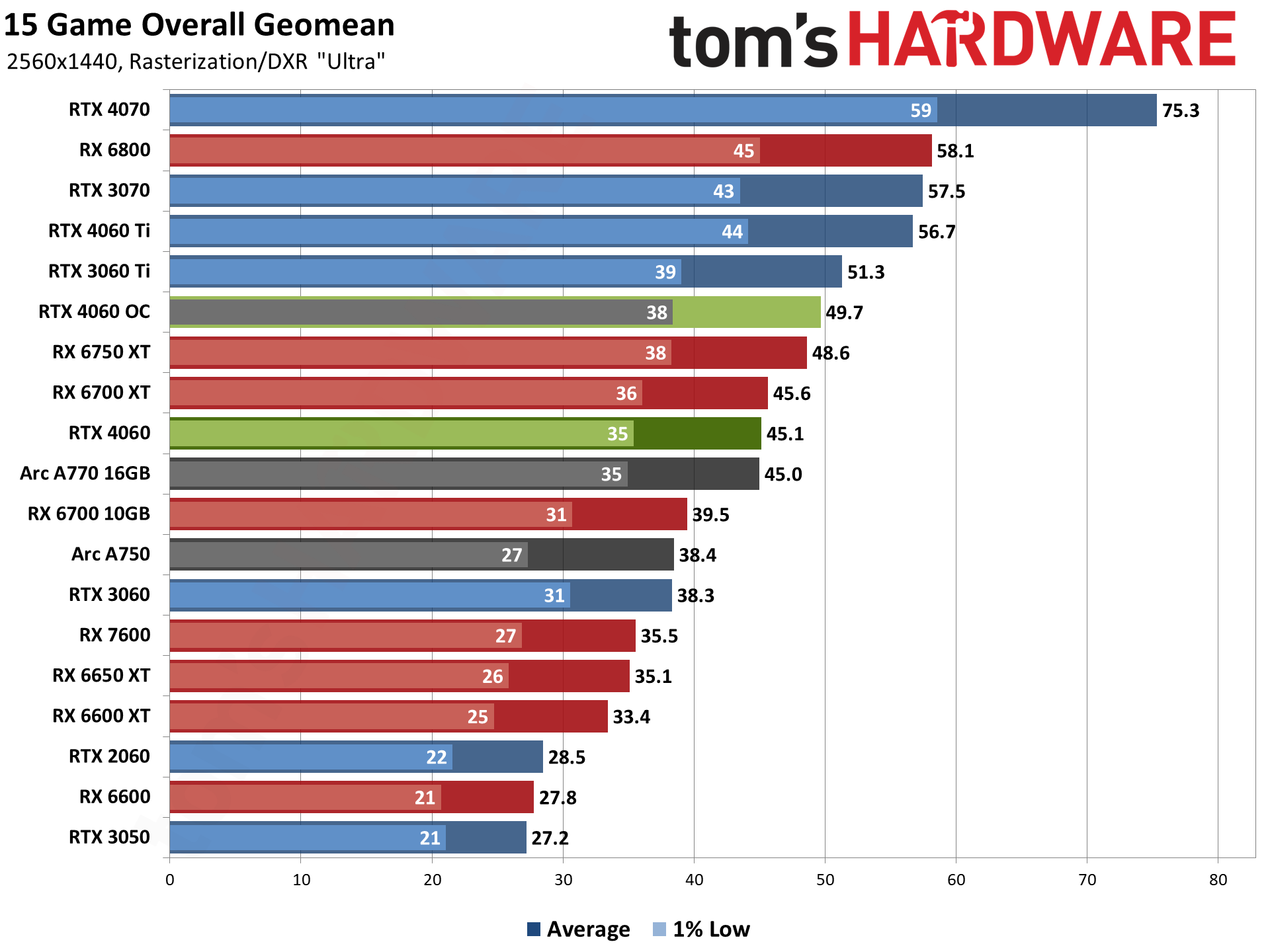
The RTX 4060 still beats the RTX 3060, but the margin has dropped to 18%, down from 22%. It's not a huge difference, but overall performance is also hit and miss at 1440p, as we'll see in the individual game results. Most of the games are playable, meaning they run at 30 fps or more, but the overall 45 fps average means there are games in our test suite that will drop well below that mark.
For 1440p, you'd be better off with high settings, and enabling DLSS Quality upscaling where available. DLSS incidentally got every game in our test suite over the 30 fps mark, even at ultra settings. Frame Generation (DLSS 3) isn't as widely supported, but it typically improved frames to screen by another 40–50 percent. Except in Forza Horizon 5 where the latest patch apparently broke Frame Generation. Oops.
The RTX 4060 also leads the RX 7600, this time by 27% overall. The margins in DXR games are much bigger than at 1080p, but Borderlands 3 is the only game where AMD's latest mainstream card can clearly beat the RTX 4060. And if you have an RTX 2060, the gains are also quite good with nearly 60% better 1440p performance overall.
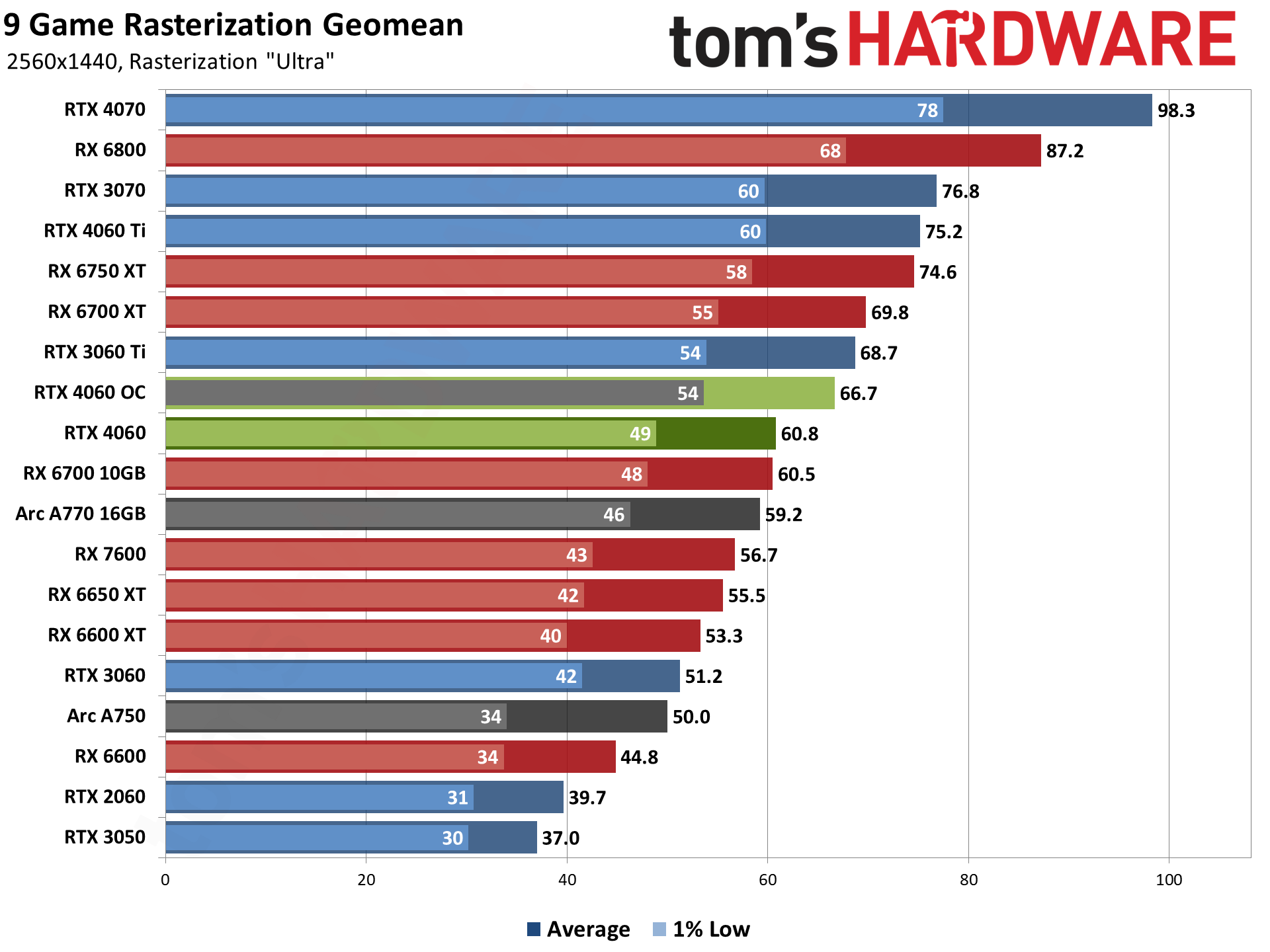
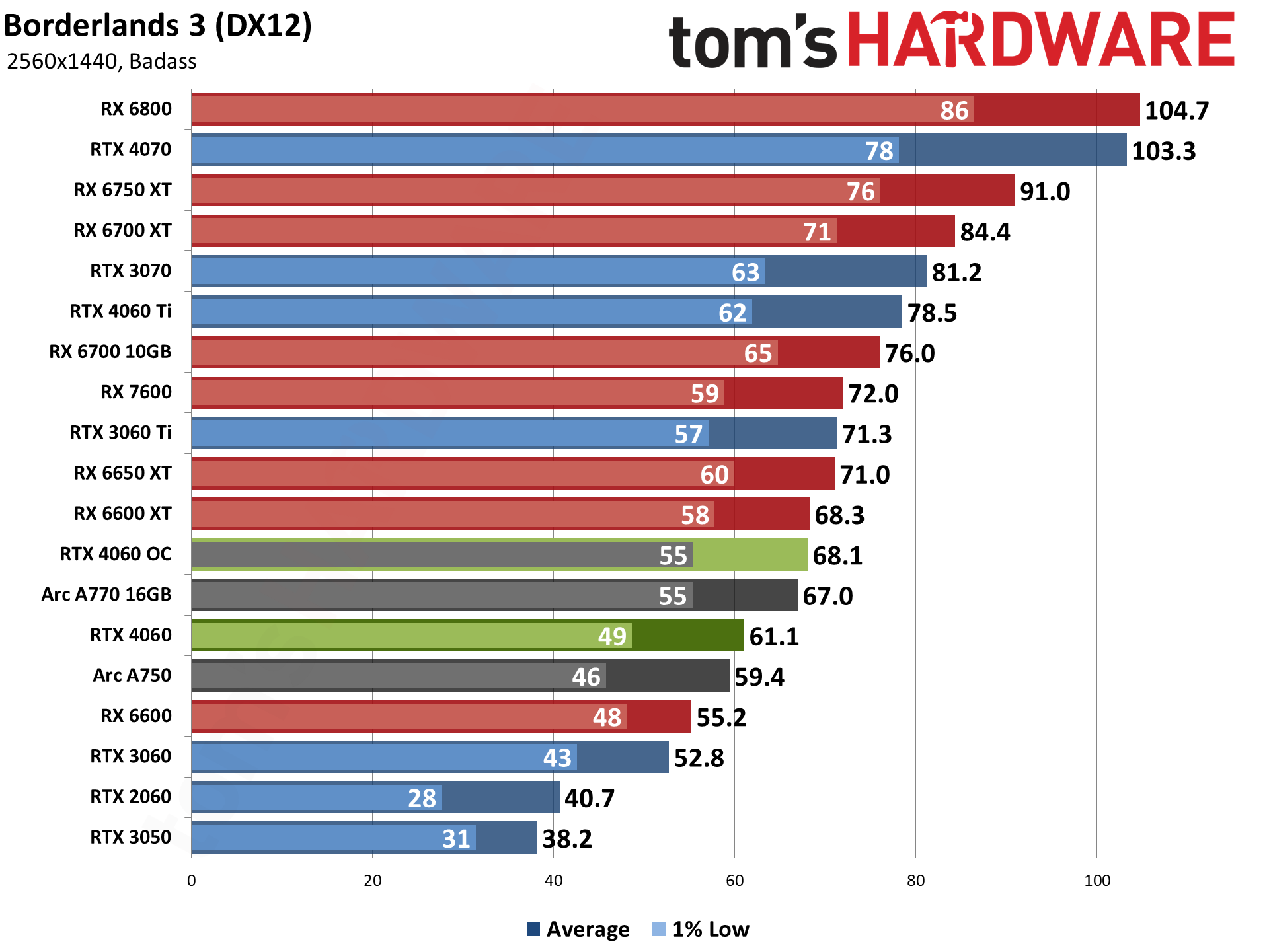
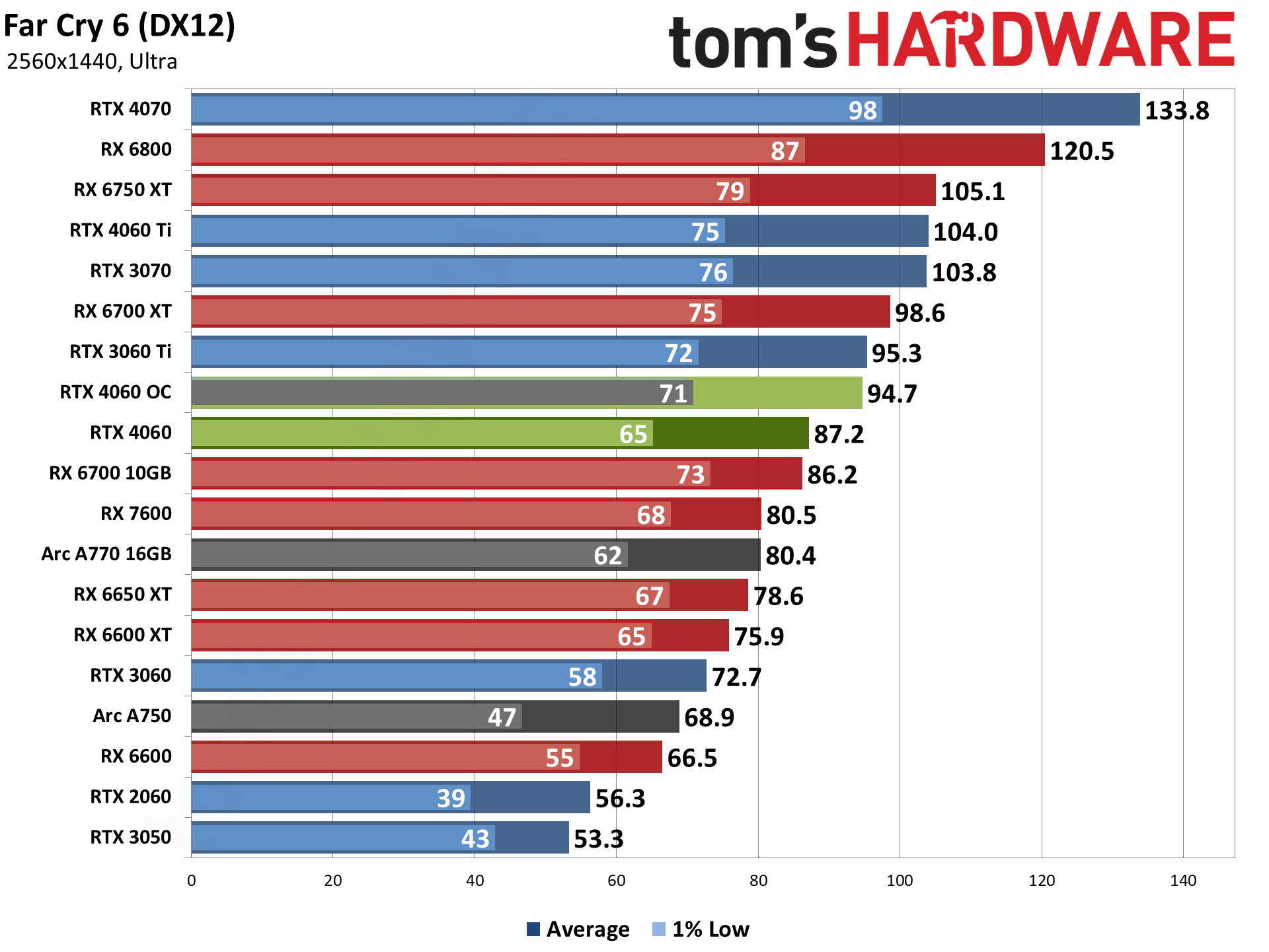
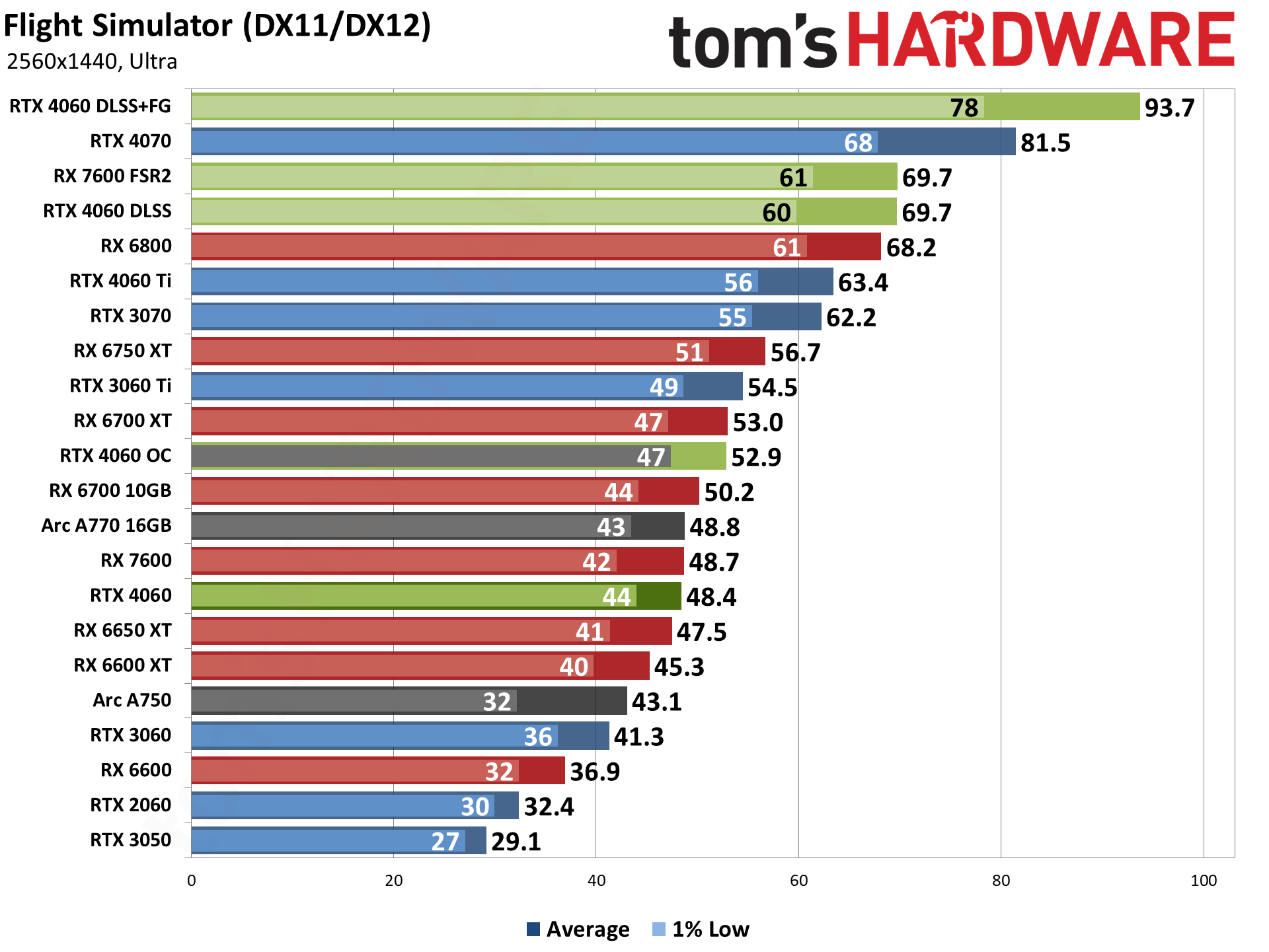
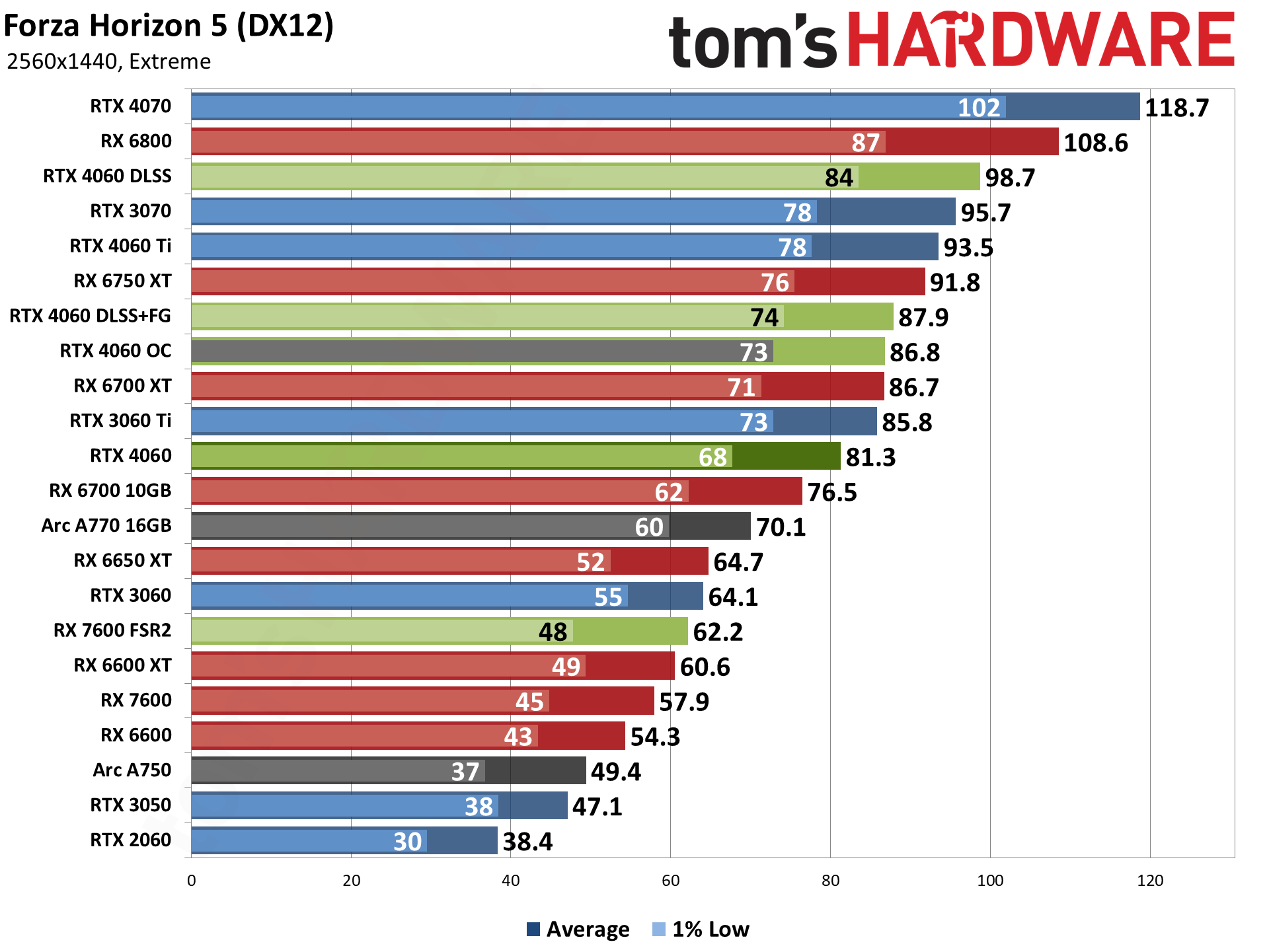
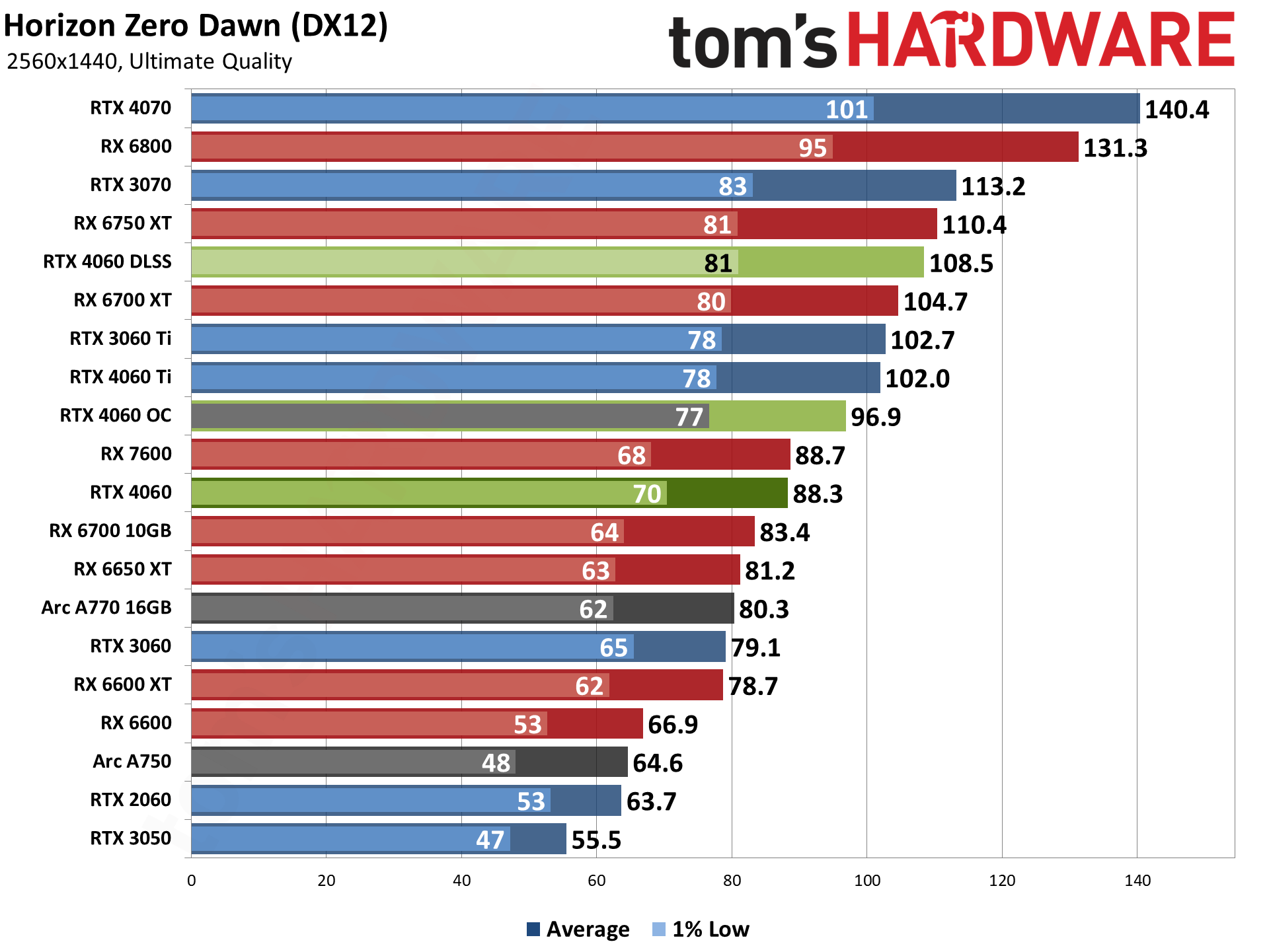
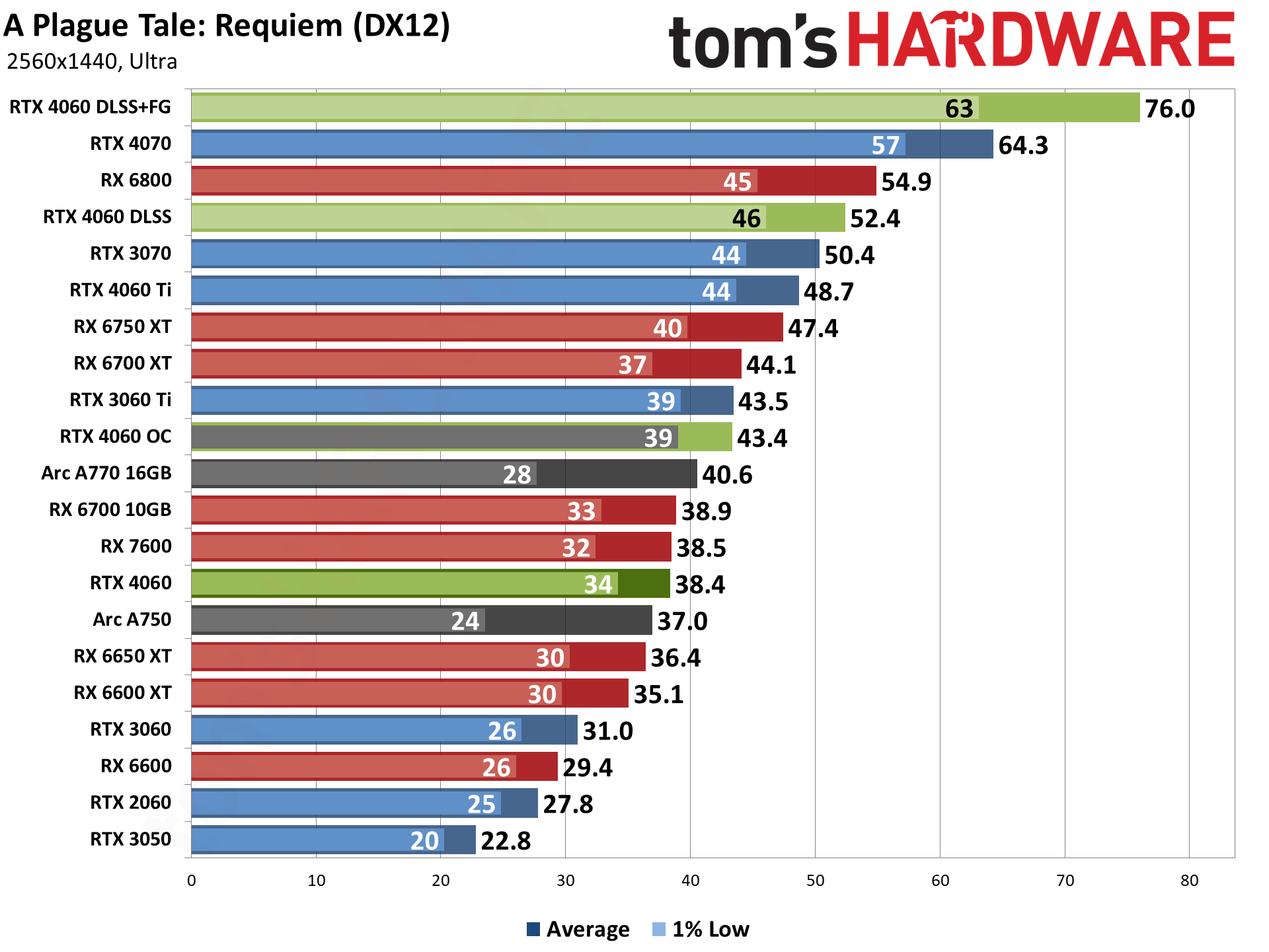
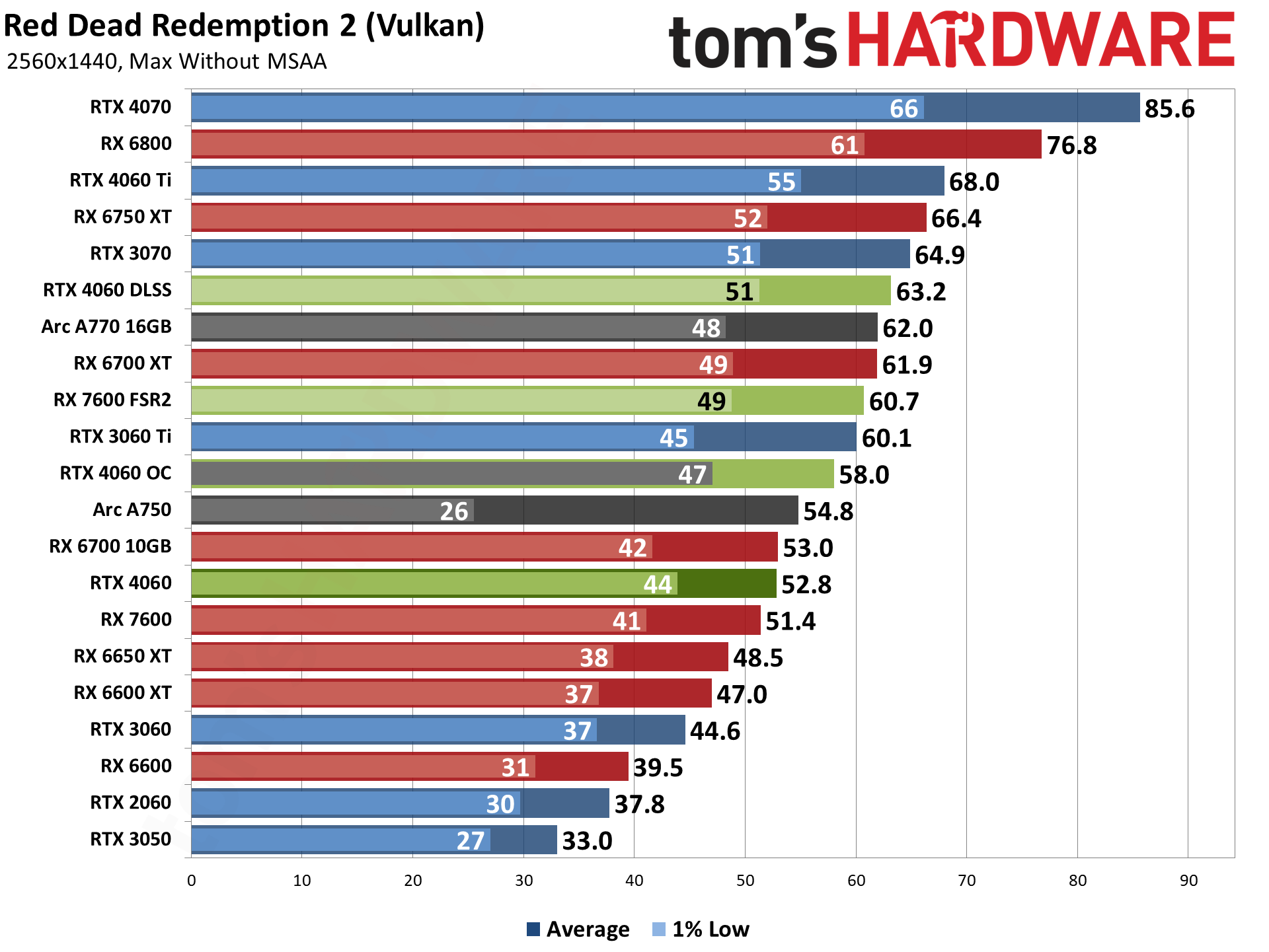
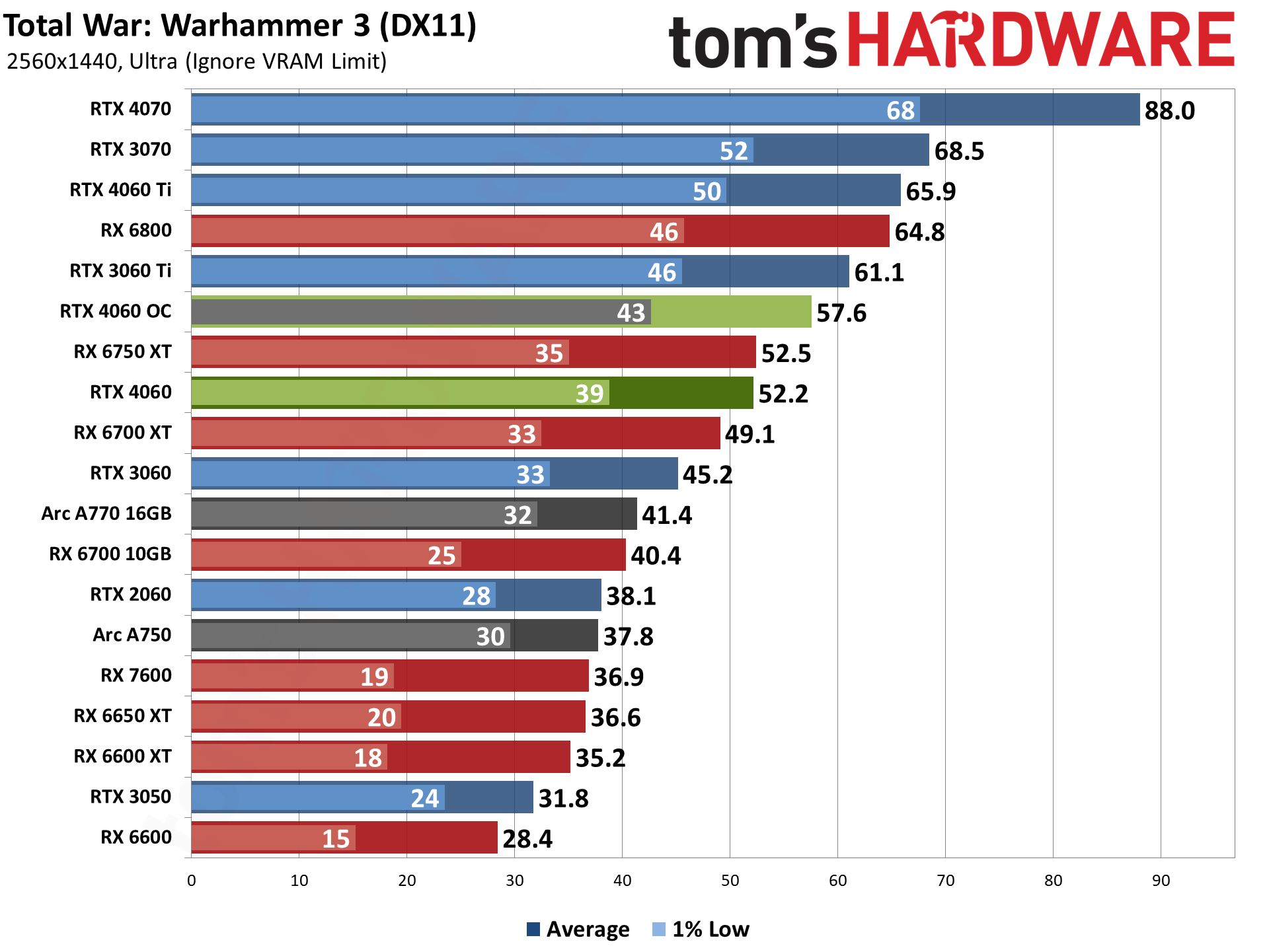
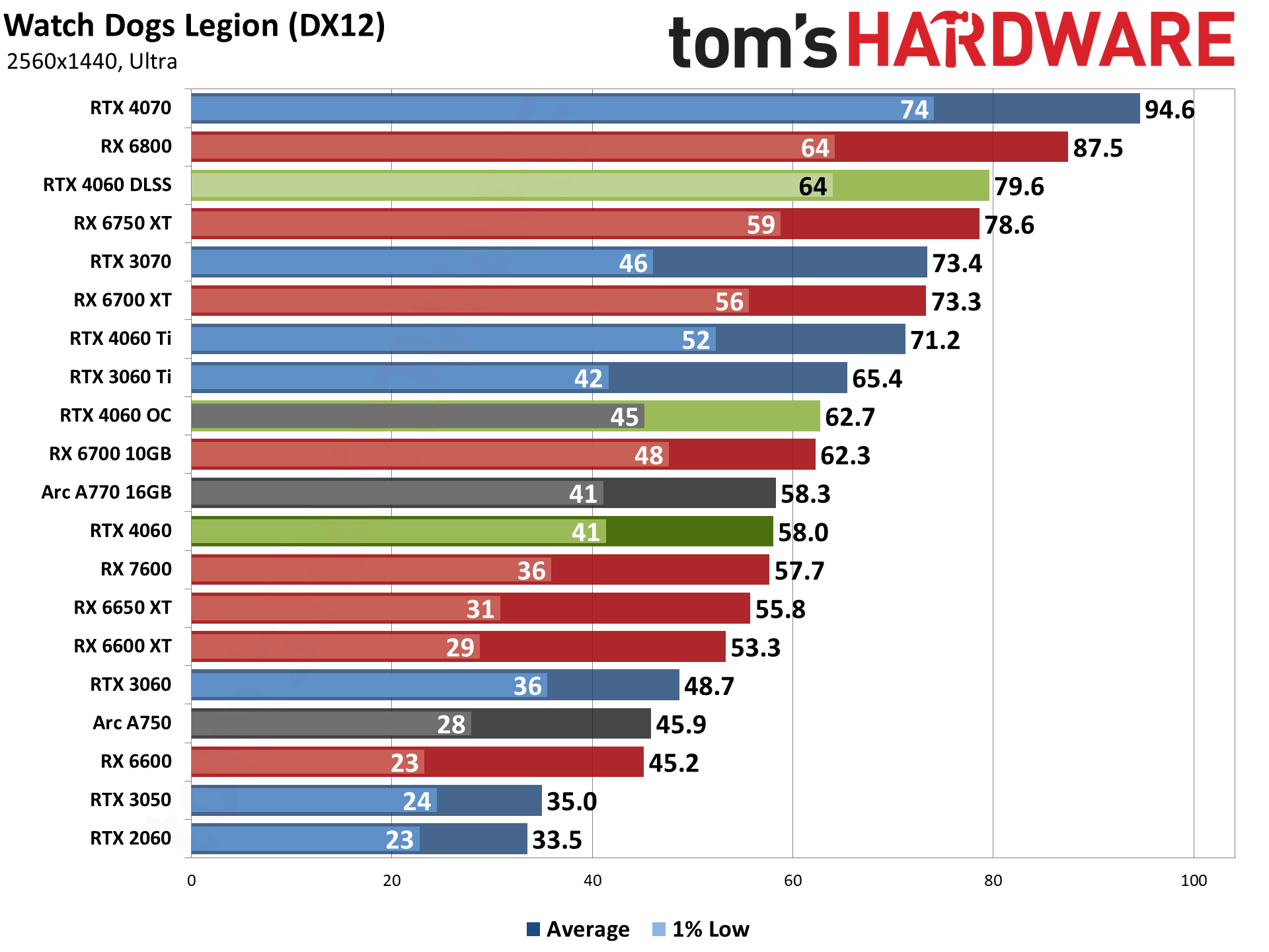
Our rasterization suite shows that most of these games are still very playable, with many breaking 60 fps. A Plague Tale: Requiem is by far and away the worst performing of the group, averaging 38 fps, but DLSS and Frame Generation can push that up to 76 fps.
The lead over AMD's RX 7600 is only 8%, while the previous generation RX 6700 XT leads the 4060 by 15% — only Total War: Warhammer 3 gives the 4060 a slight lead over AMD's similarly priced previous generation GPU. If you're primarily interested in rasterization performance, it's still an easy pick over the newcomer, at least if you're only looking at pure performance and not accounting for power use.
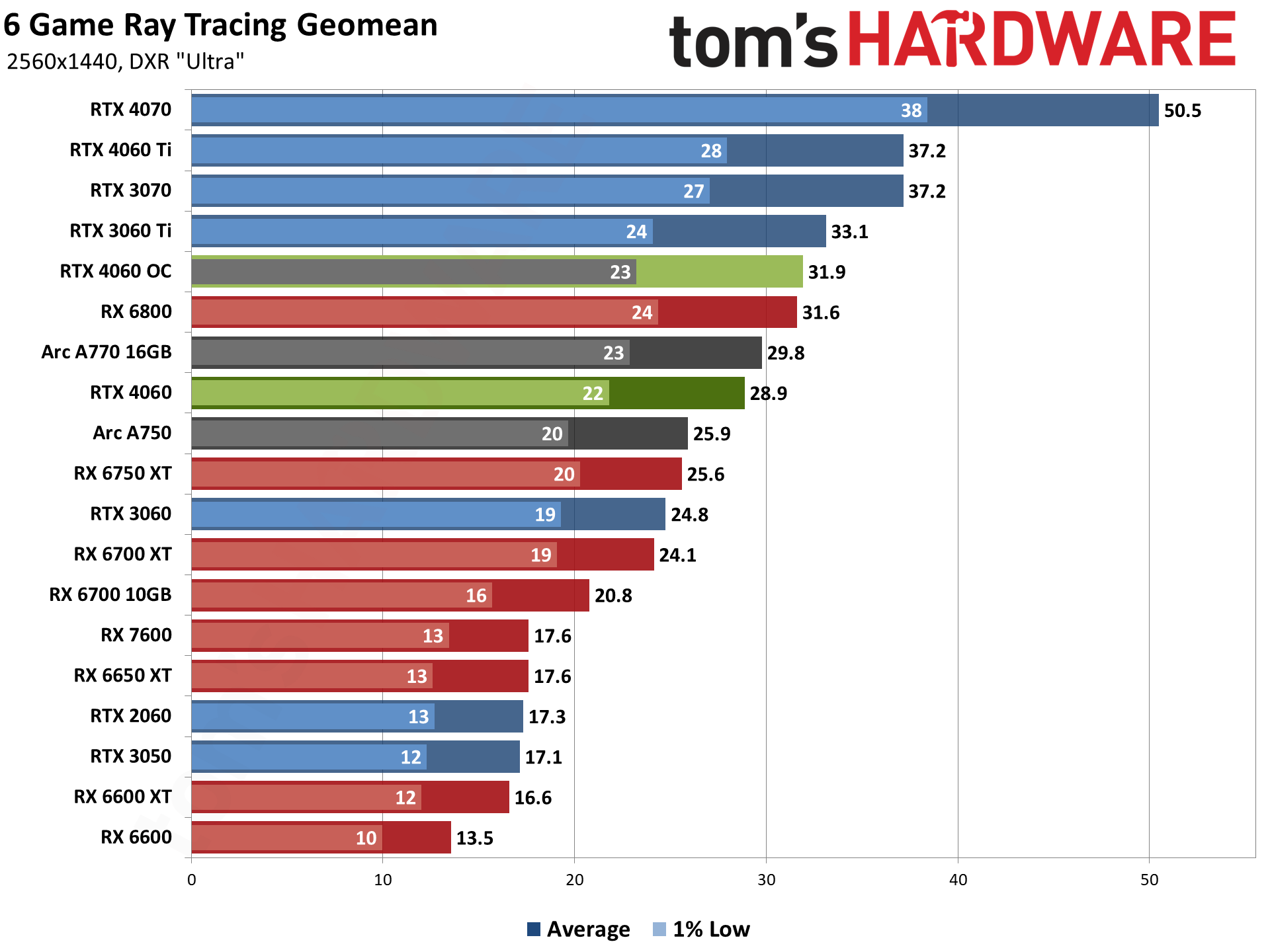
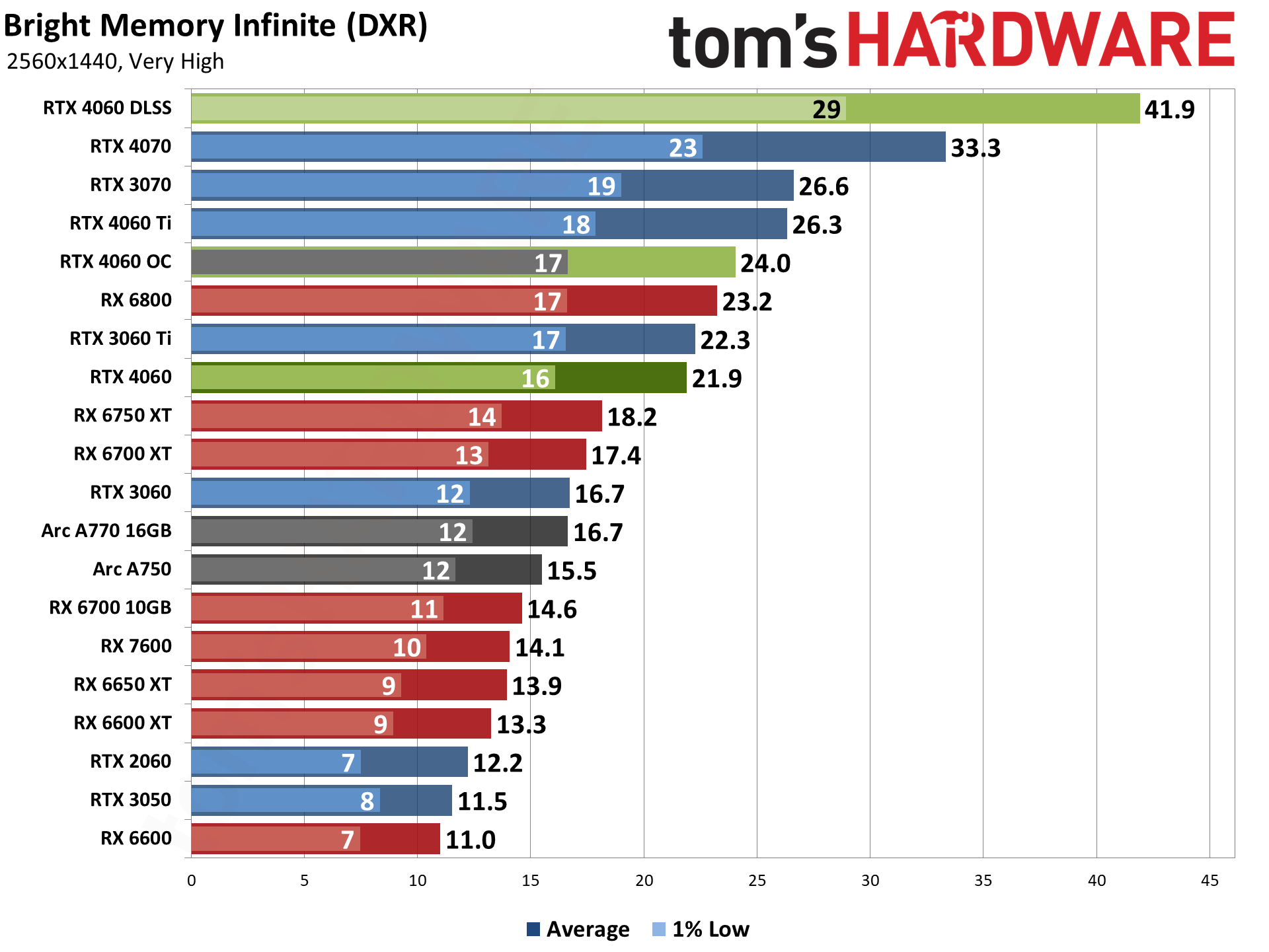
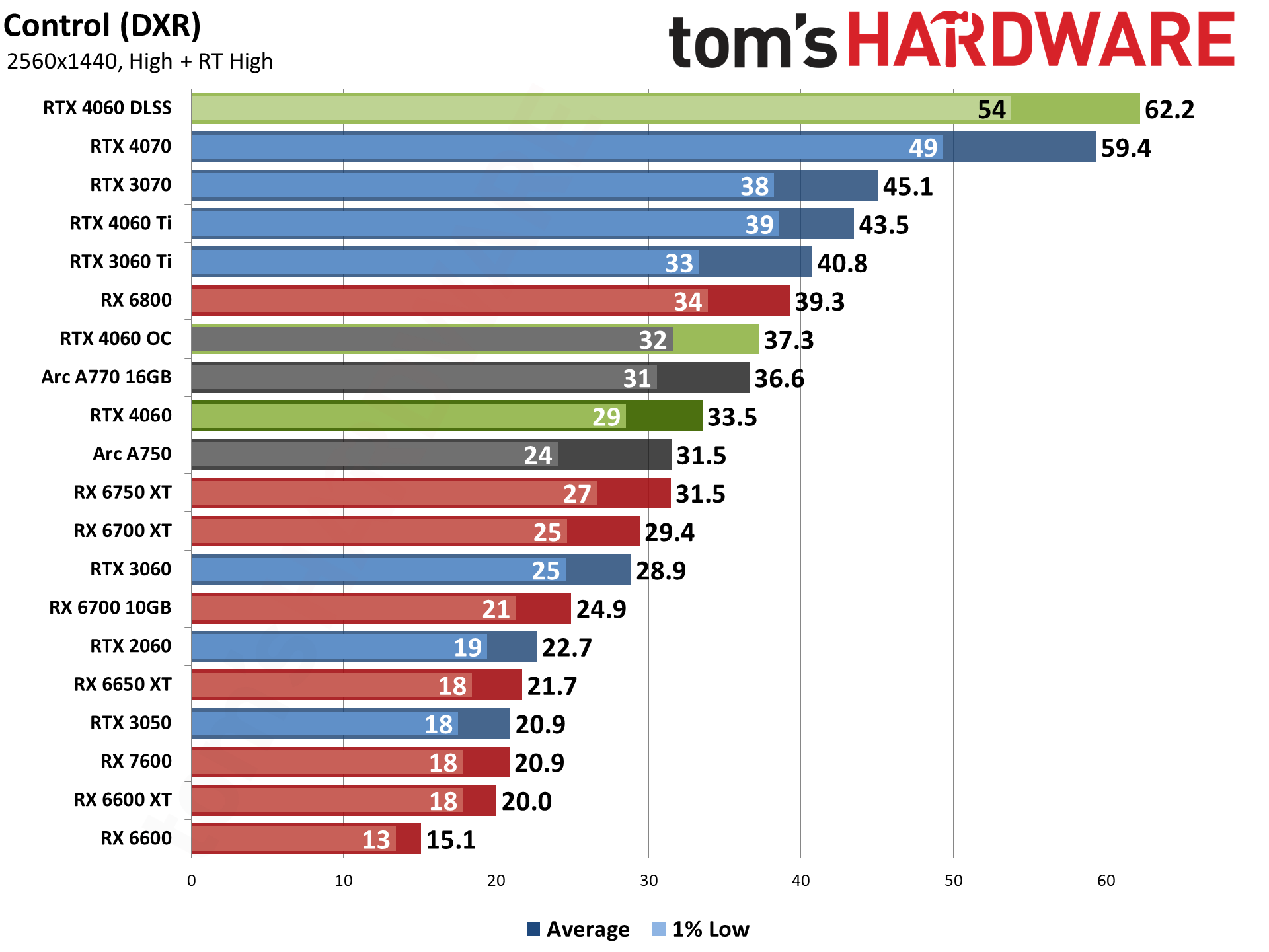
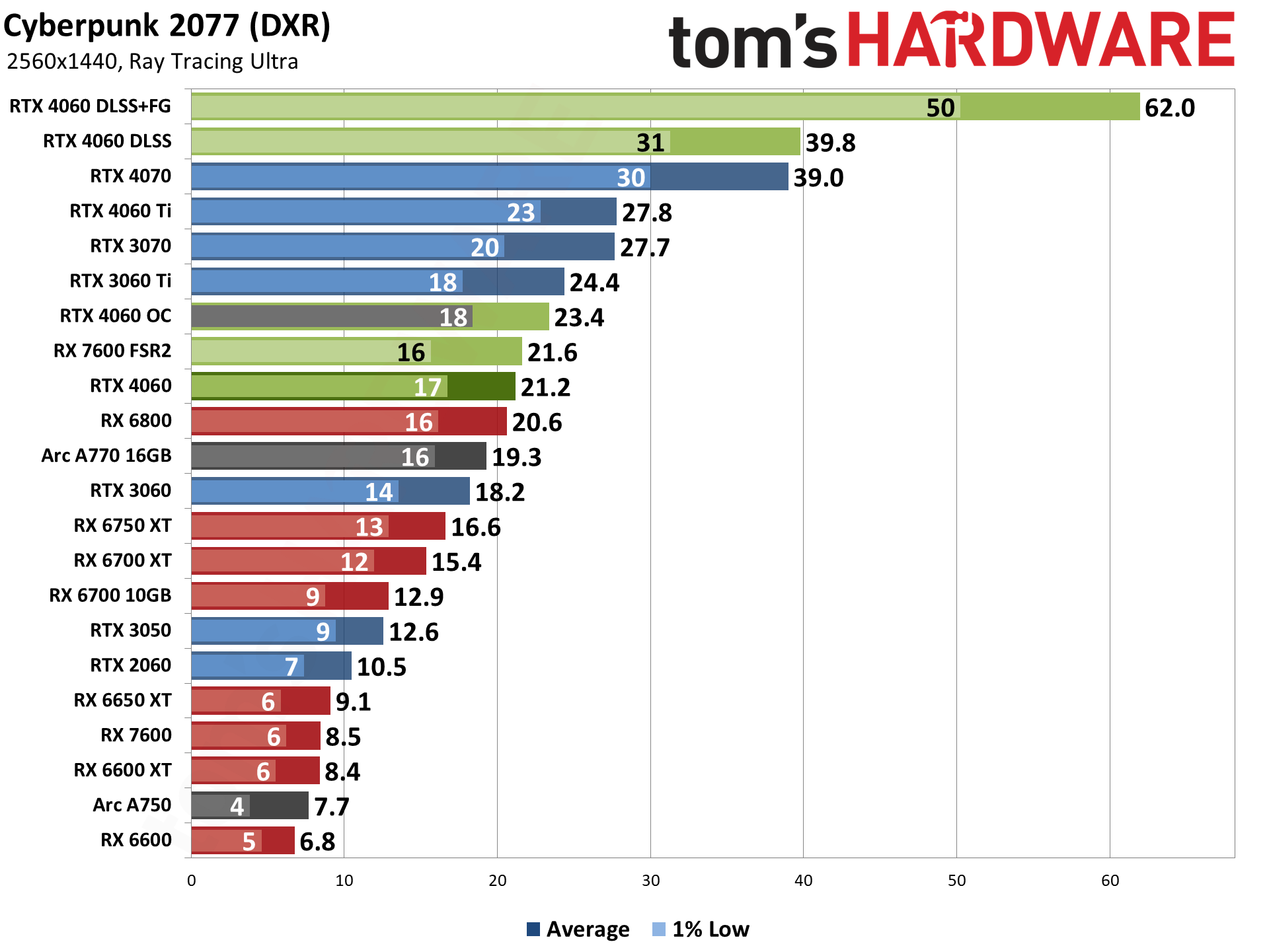
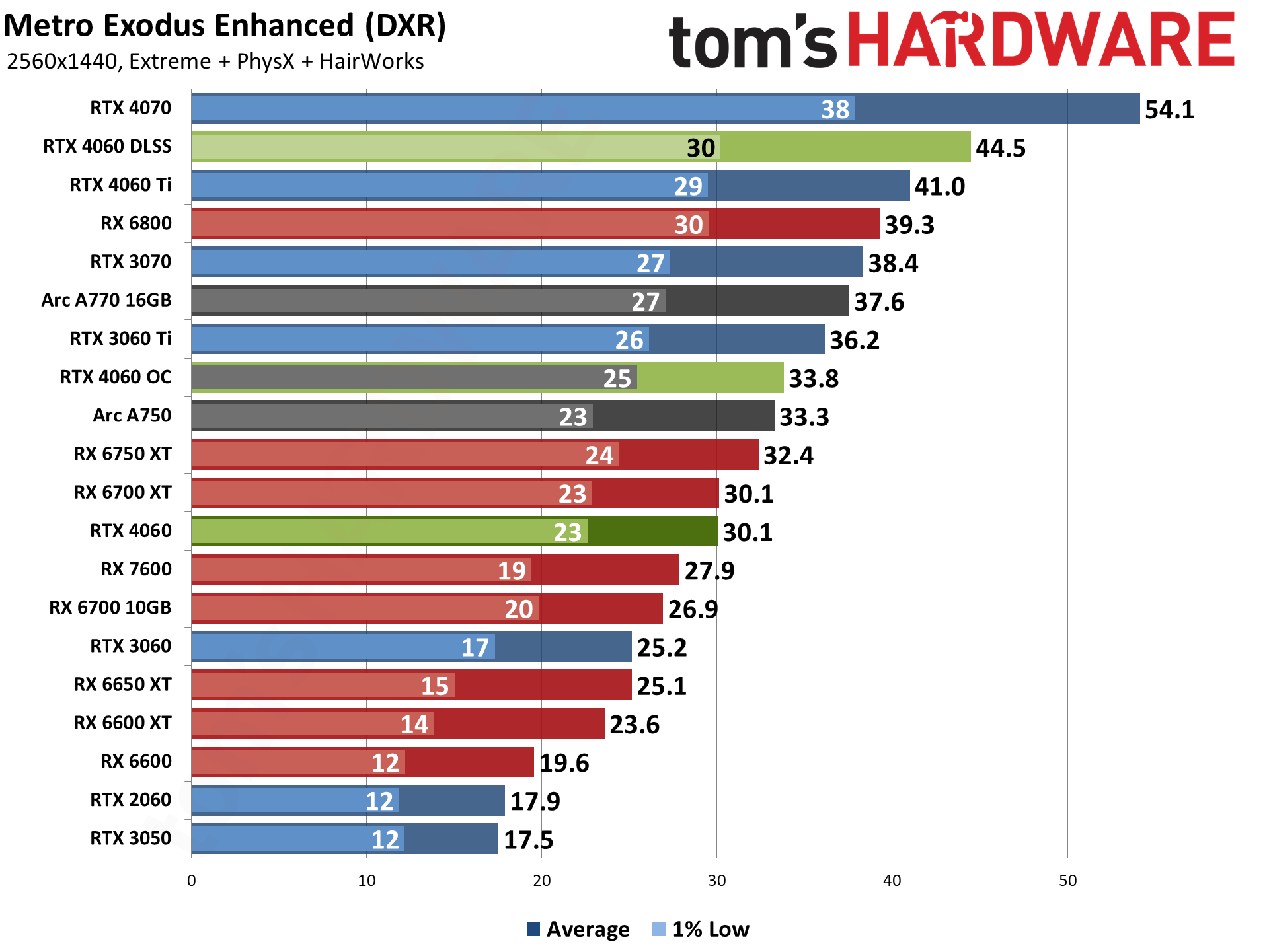
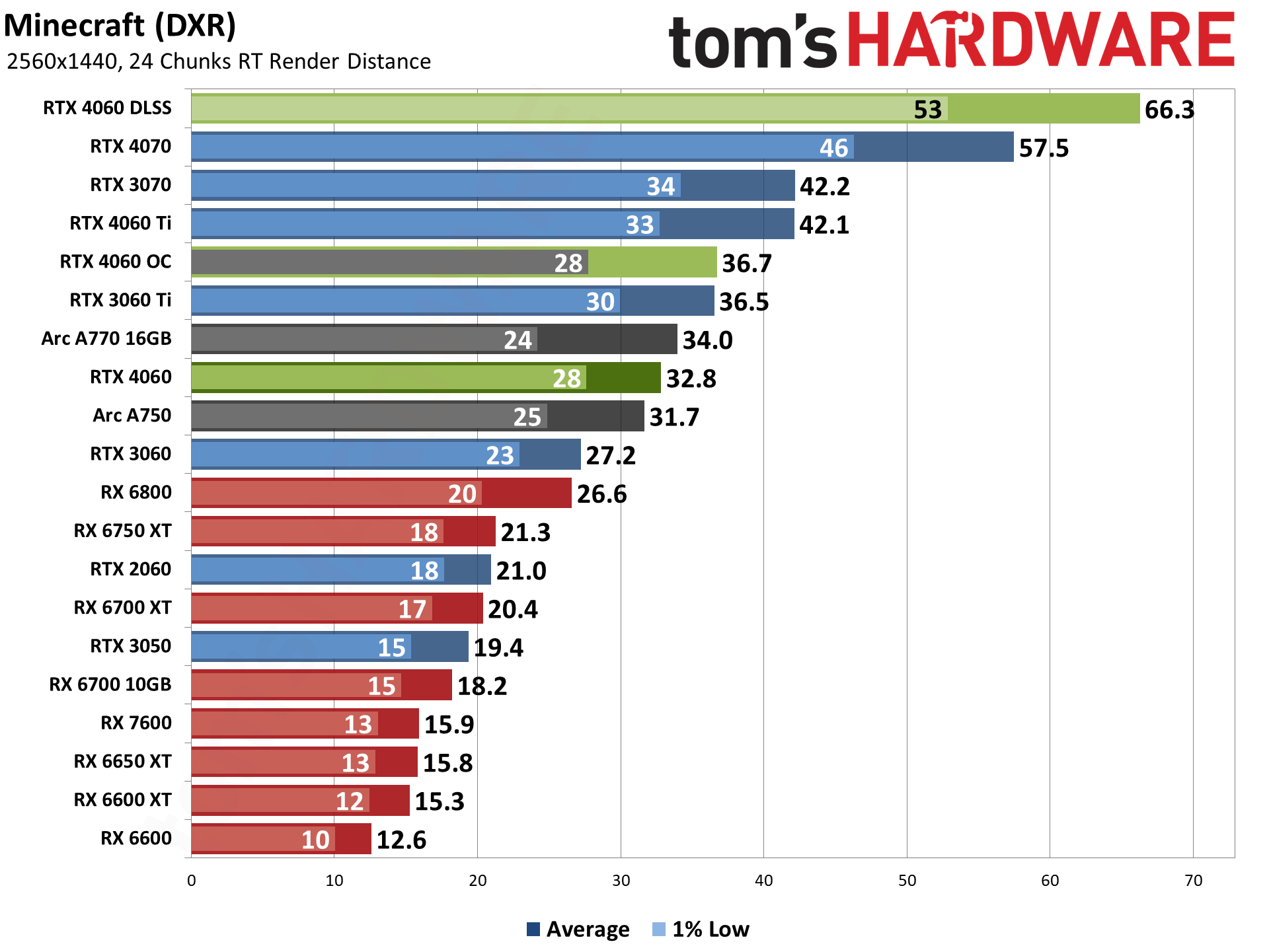
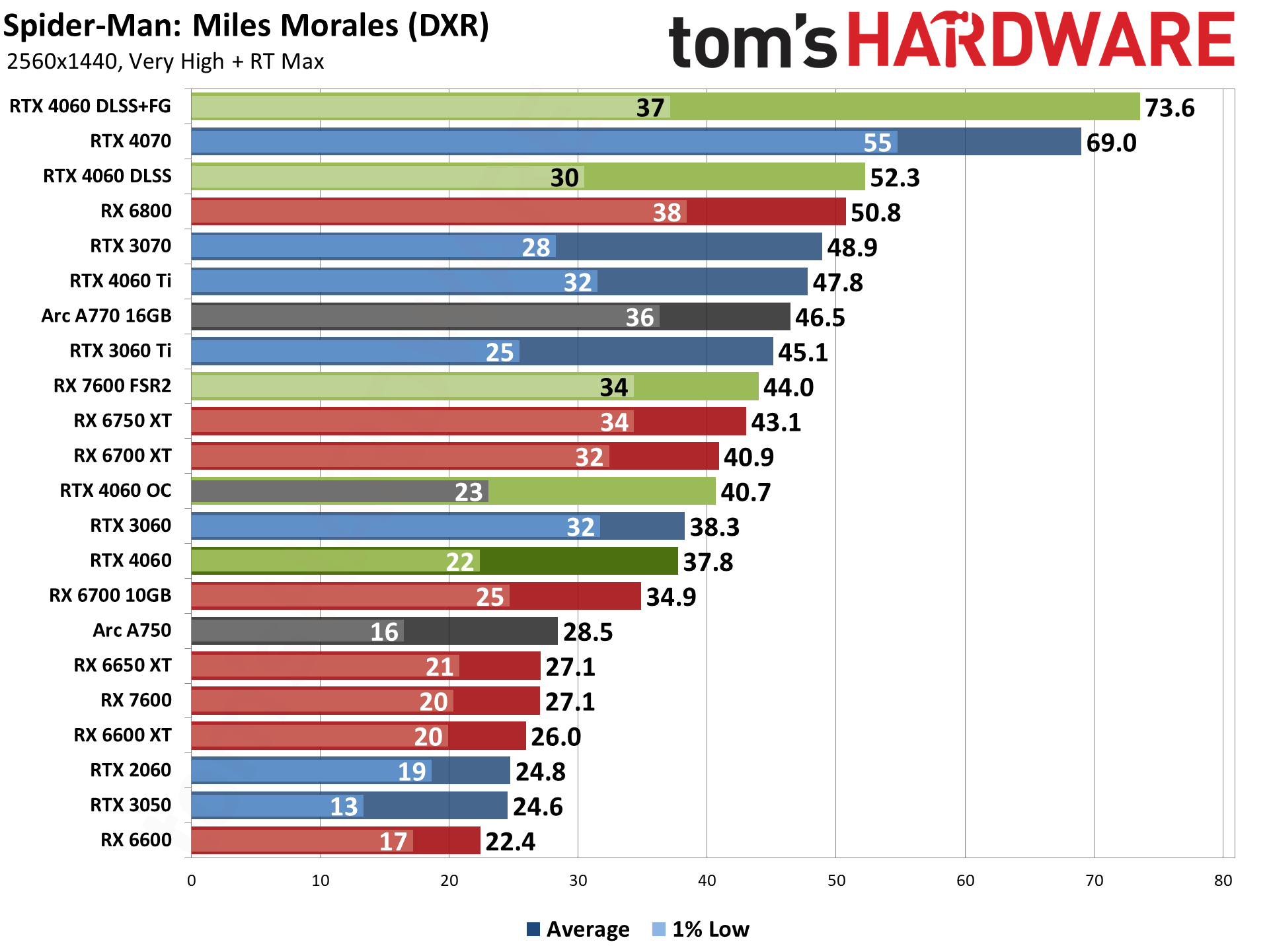
Ray tracing at 1440p without upscaling pushes the RTX 4060 hard. Cyberpunk 2077 and the Bright Memory Infinite Benchmark barely clear 20 fps, while the other games are all in the low to mid 30s. But all six of these games support DLSS upscaling, which can get you 40 fps or more using Quality mode. DLSS 3 Frame Generation in Cyberpunk 2077 and Spider-Man: Miles Morales can even break the 60 fps mark in those tow games.
Whether or not you think Frame Generation and DLSS upscaling are useful is another matter. I personally don't have any real issues with DLSS upscaling — in some cases, the AI upscaling and anti-aliasing can actually look better than native rendering, at least in games where the TAA anti-aliasing tends to be overly blurry and aggressive. Frame Generation is a different matter.
It's fine, but as we've noted in the past, the relatively large 40–50 percent performance gains (compared to just upscaling) don't really represent the real-world feel of the games. Cyberpunk 2077 might send 62 frames to the monitor every second, but half of those are "generated," which means the base input rate is only equal to 31 fps. In other words, the game will feel like it's running at half the Frame Gen rate, and if that's 30 fps or lower, it can feel very sluggish.
Looking at other GPUs, the competing AMD cards as usual tend to fall well behind in ray tracing performance. Where the RX 6700 XT is 15% faster in rasterization performance, with DXR it's 16% slower overall, and the more demanding the ray tracing rendering, the further behind it falls — so it's still tied in Metro Exodus Enhanced, holds a slight lead in Spider-Man: Miles Morales, but trails by 28% in Cyberpunk 2077 and by 38% in Minecraft. And that's without factoring DLSS.
Interestingly, with it's 256-bit memory interface and 16GB of GDDR6 memory, the Intel Arc A770 Limited Edition can also surpass the RTX 4060 in overall native ray tracing performance at 1440p ultra. And yes, that card currently costs about the same as the RTX 4060 (plus a little bit more), though it's typically slower in 1080p performance.
Nvidia RTX 4060: 4K Gaming Performance
As you can already guess, the RTX 4060 really struggles at 4K in our relatively demanding test suite. Ray tracing at 4K in particular doesn't come anywhere near playable levels, and you'd need DLSS Performance mode upscaling and potentially Frame Generation to hit reasonable framerates.
The 8GB VRAM also definitely affects performance at 4K, more than at lower resolutions. Again, see our article on why 4K requires so much VRAM for further details on the situation. But we like to be complete in our testing, so we're including these results for the curious. We won't bother with additional commentary on the charts.
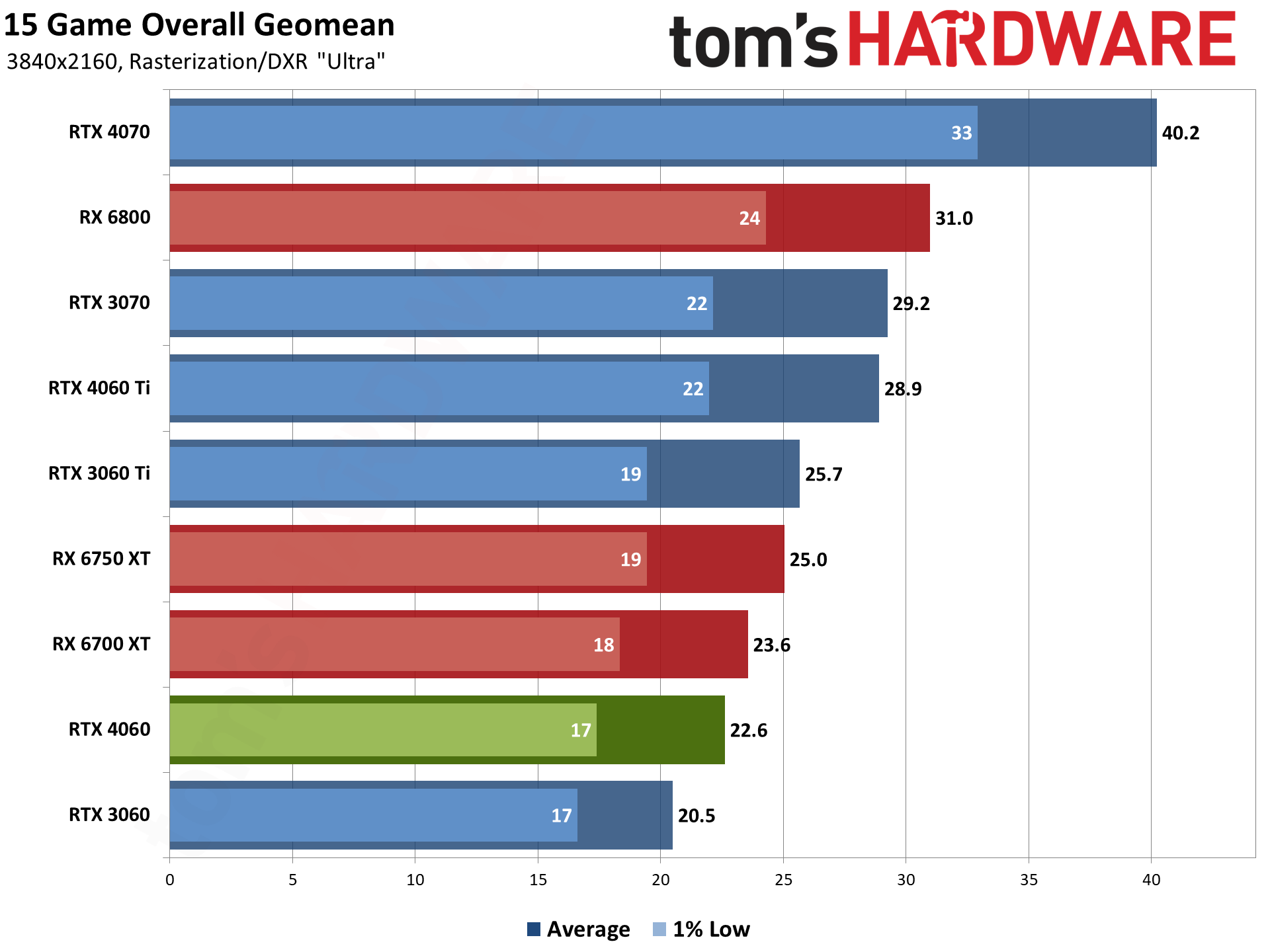
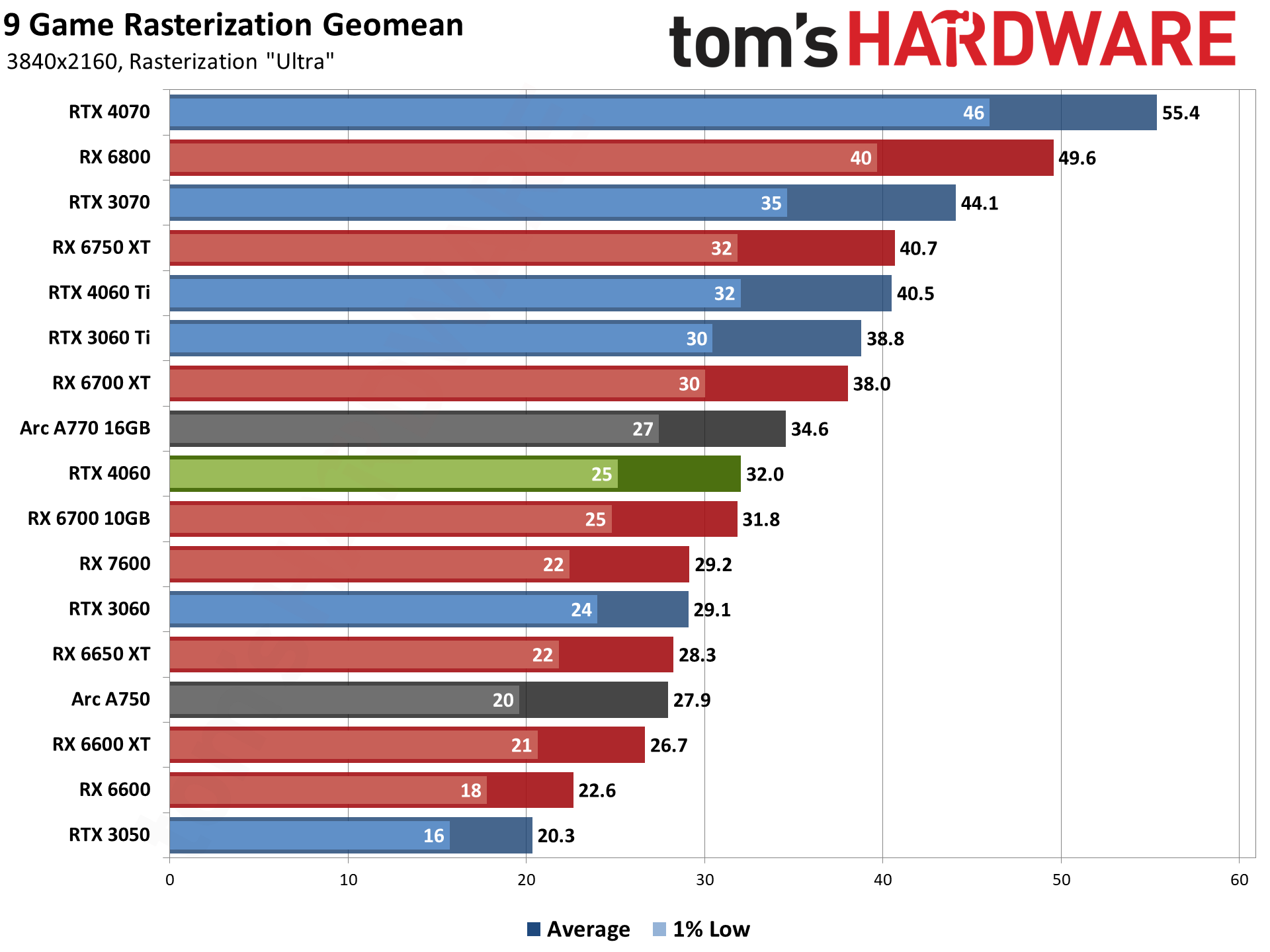
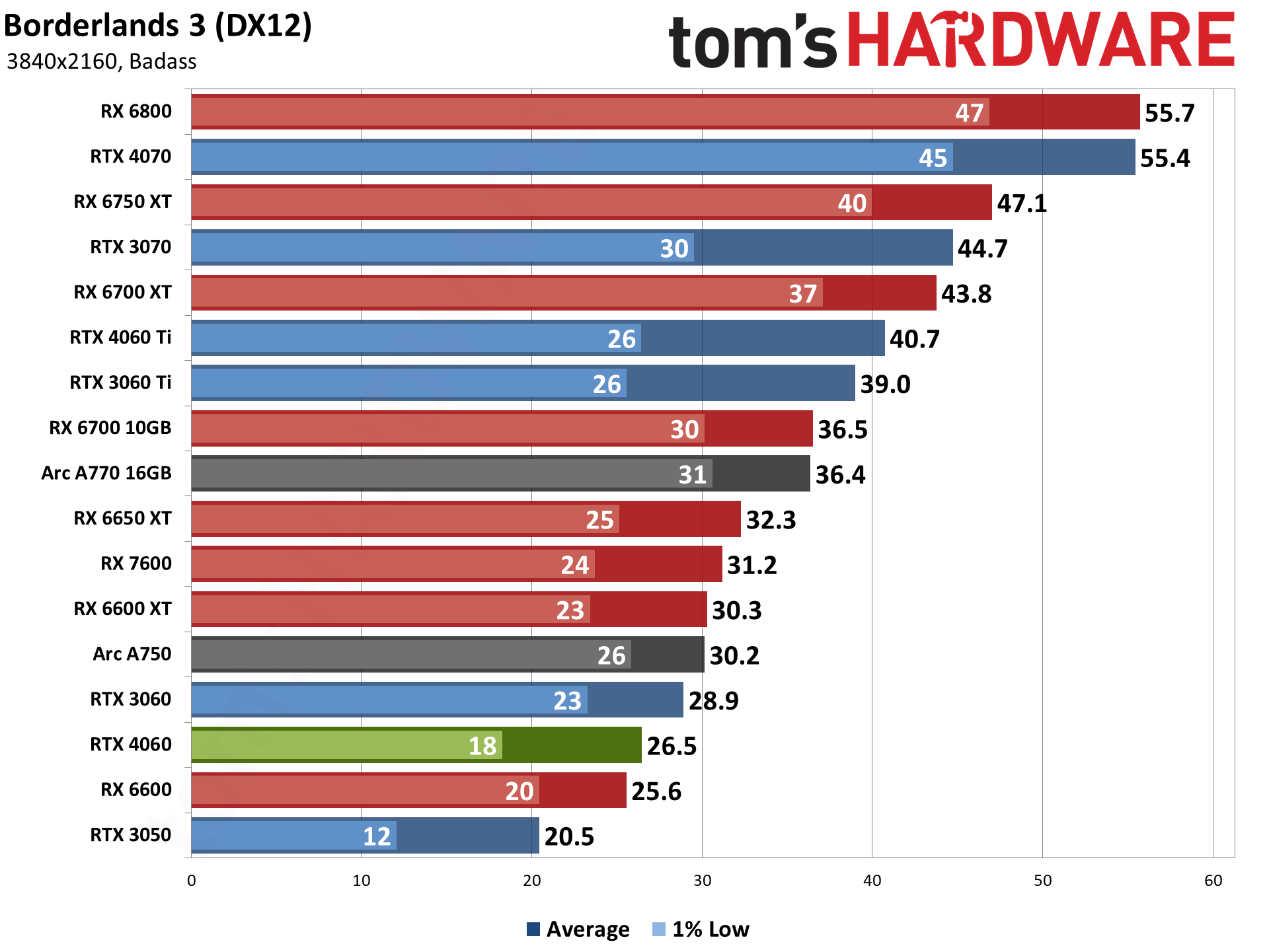
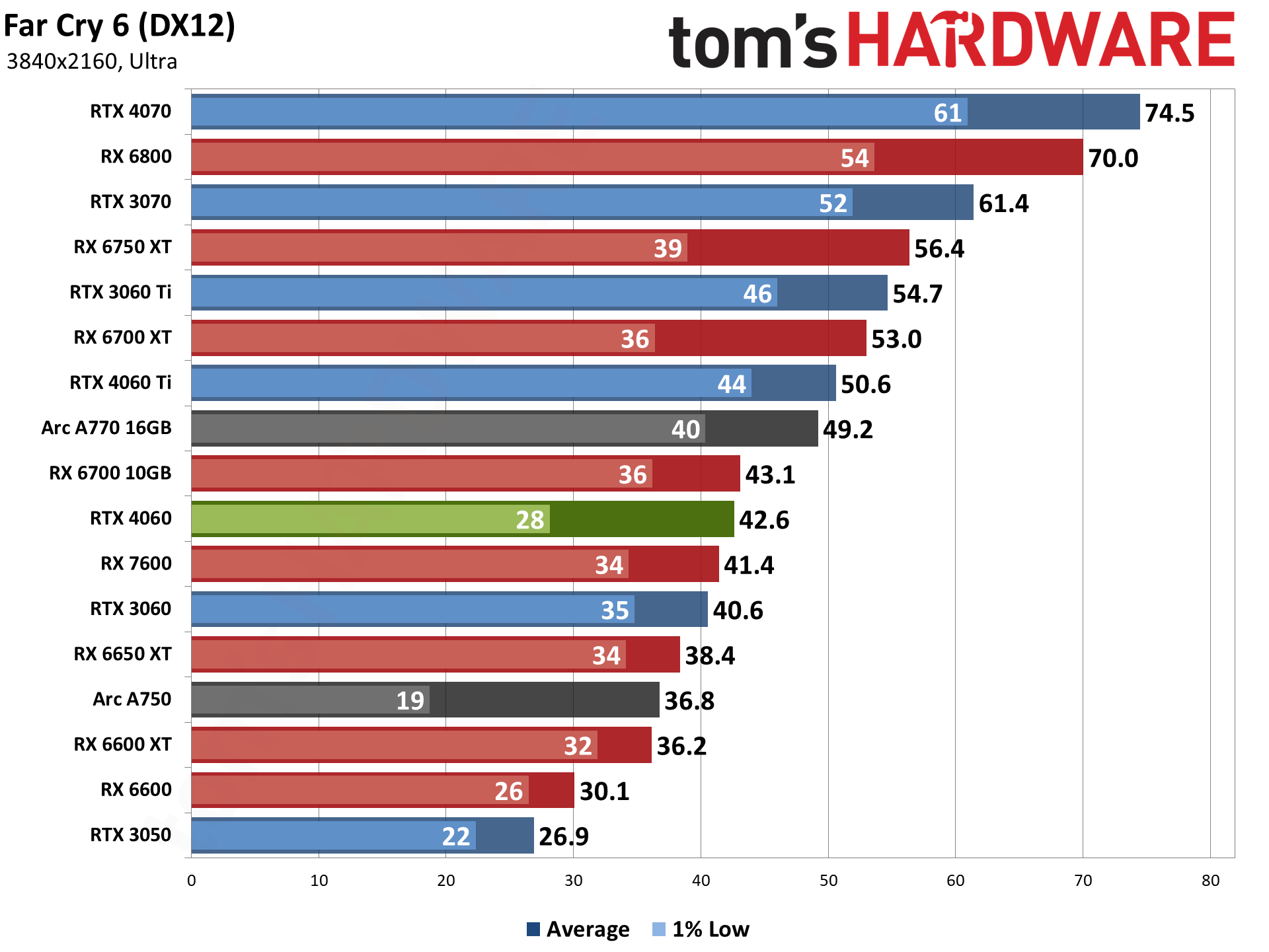
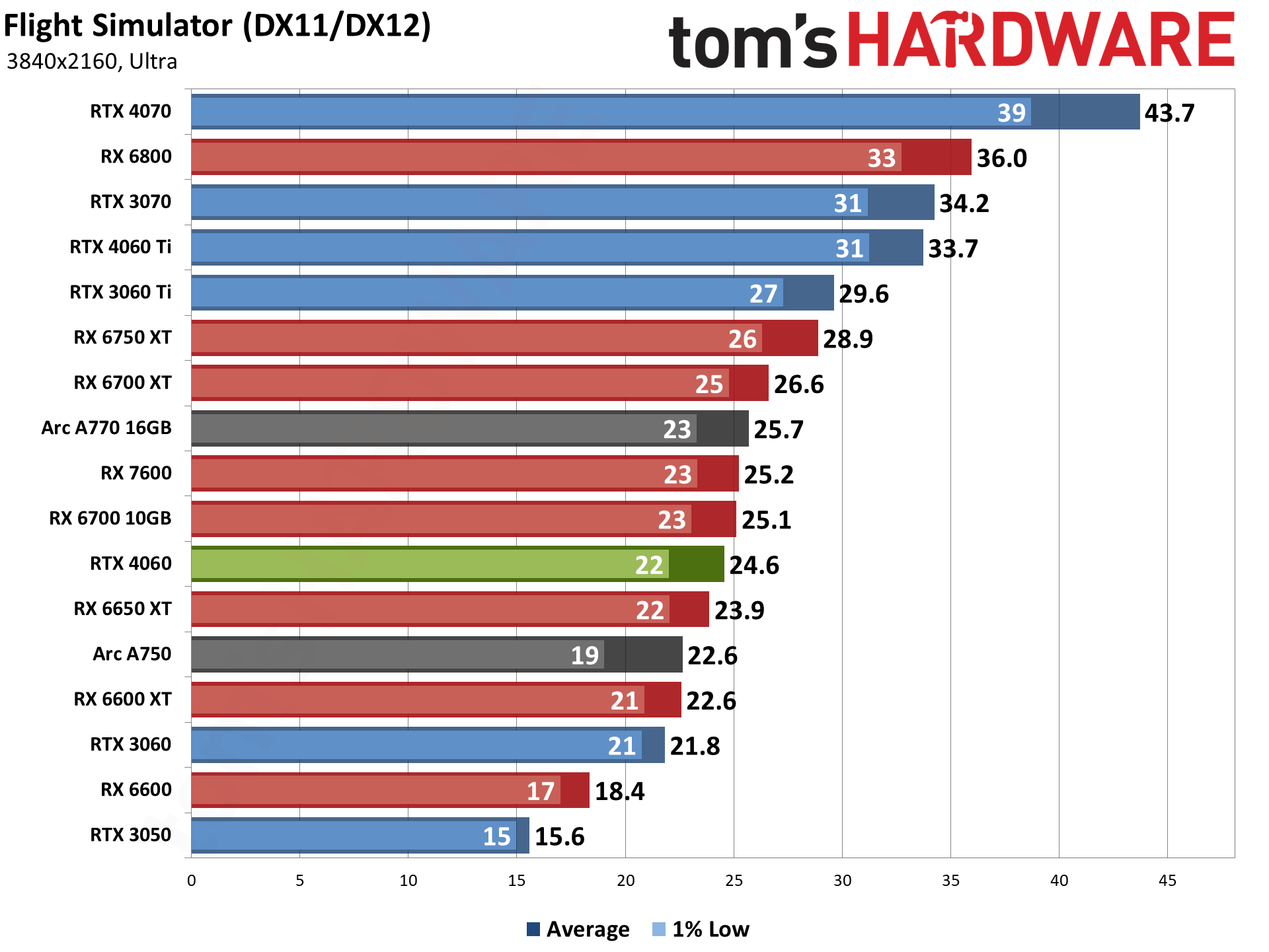
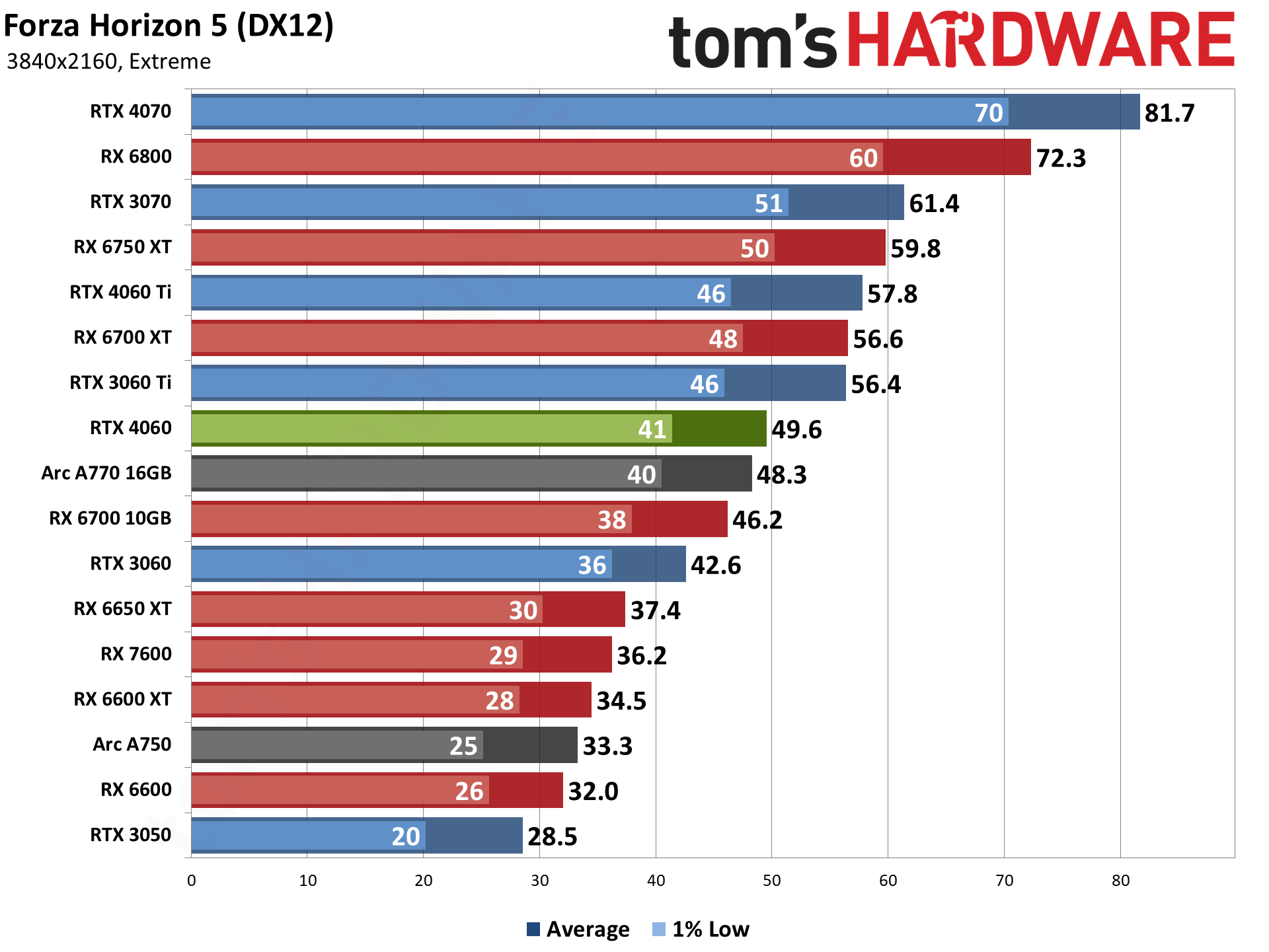
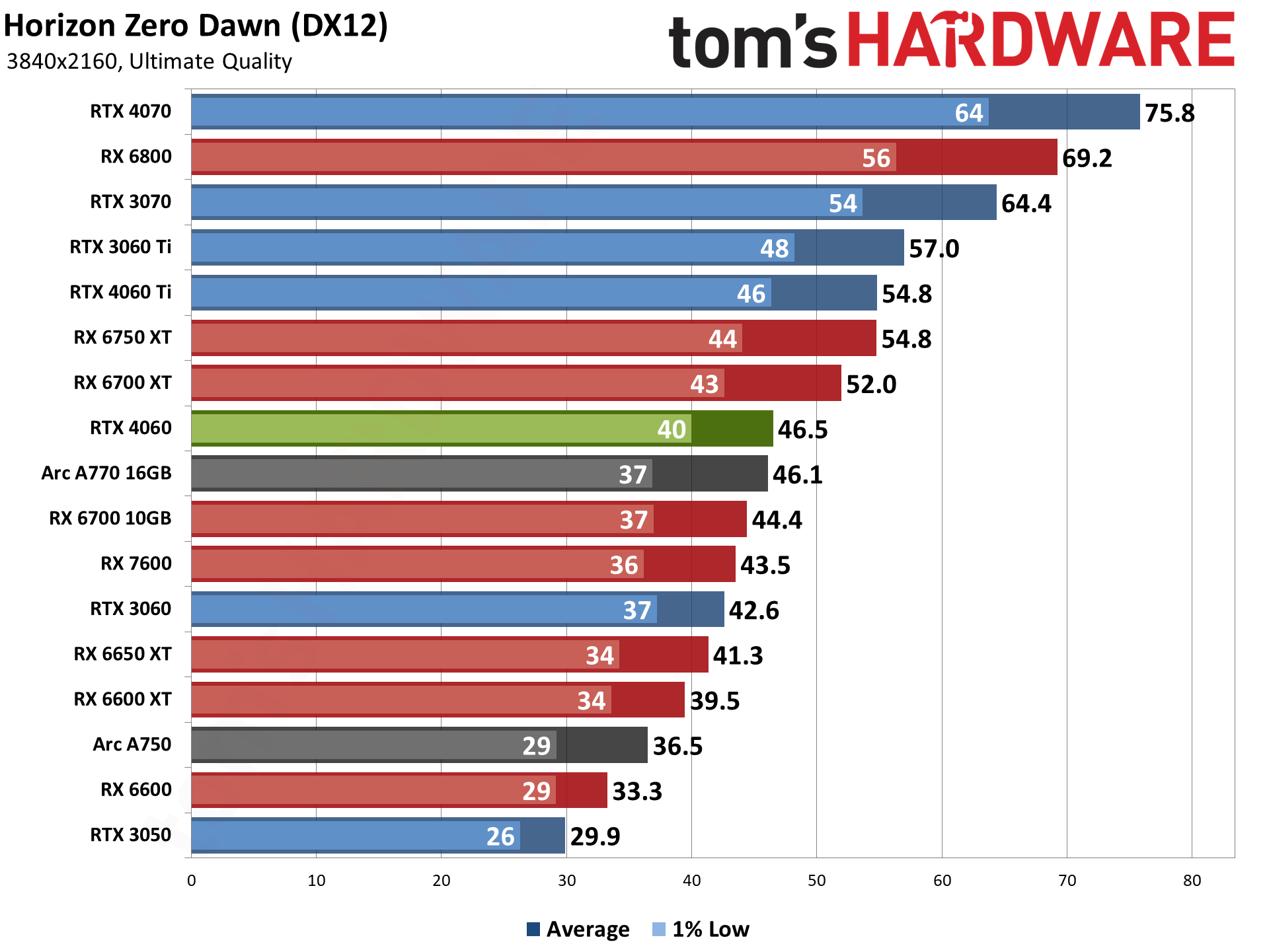
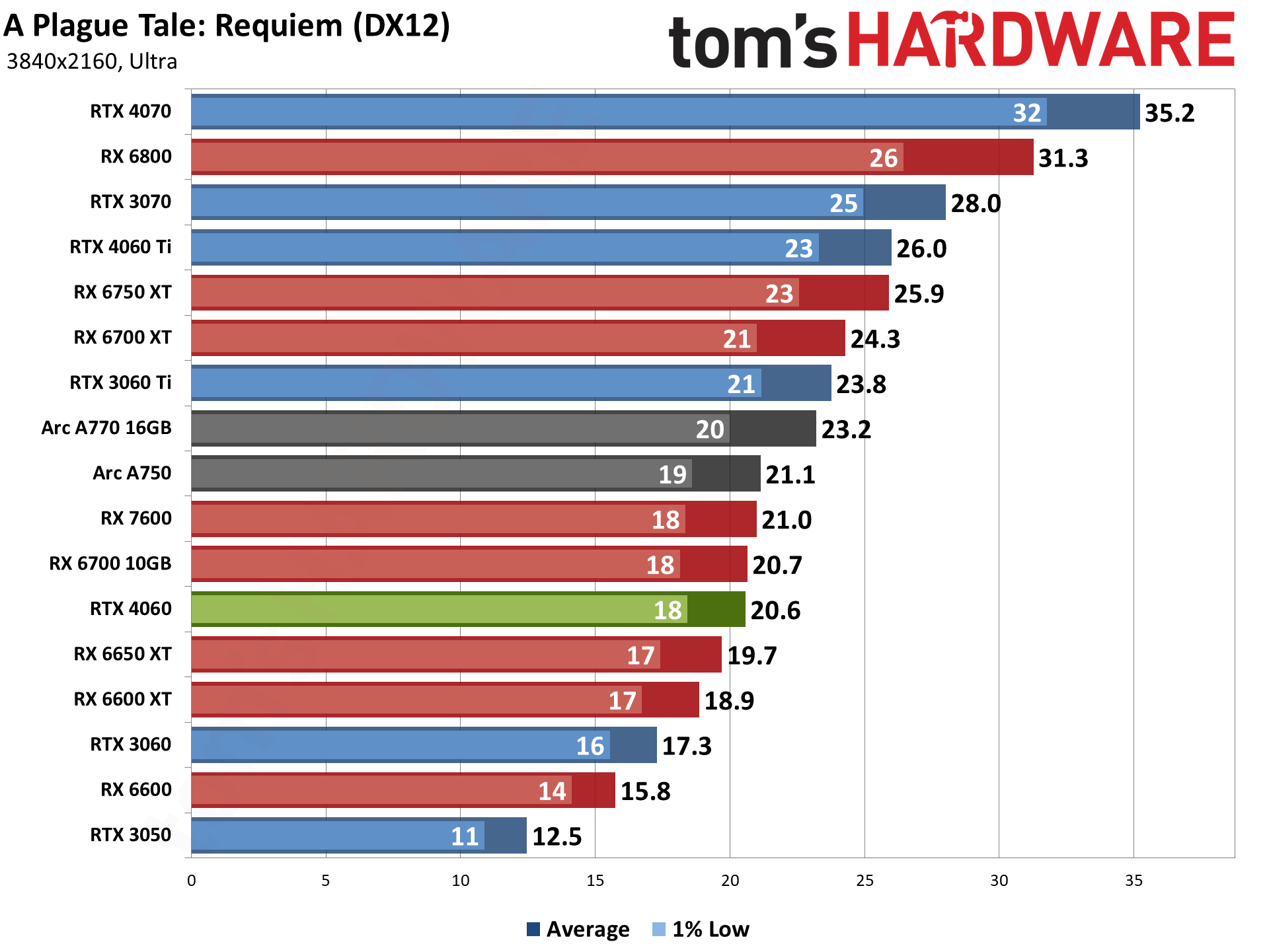
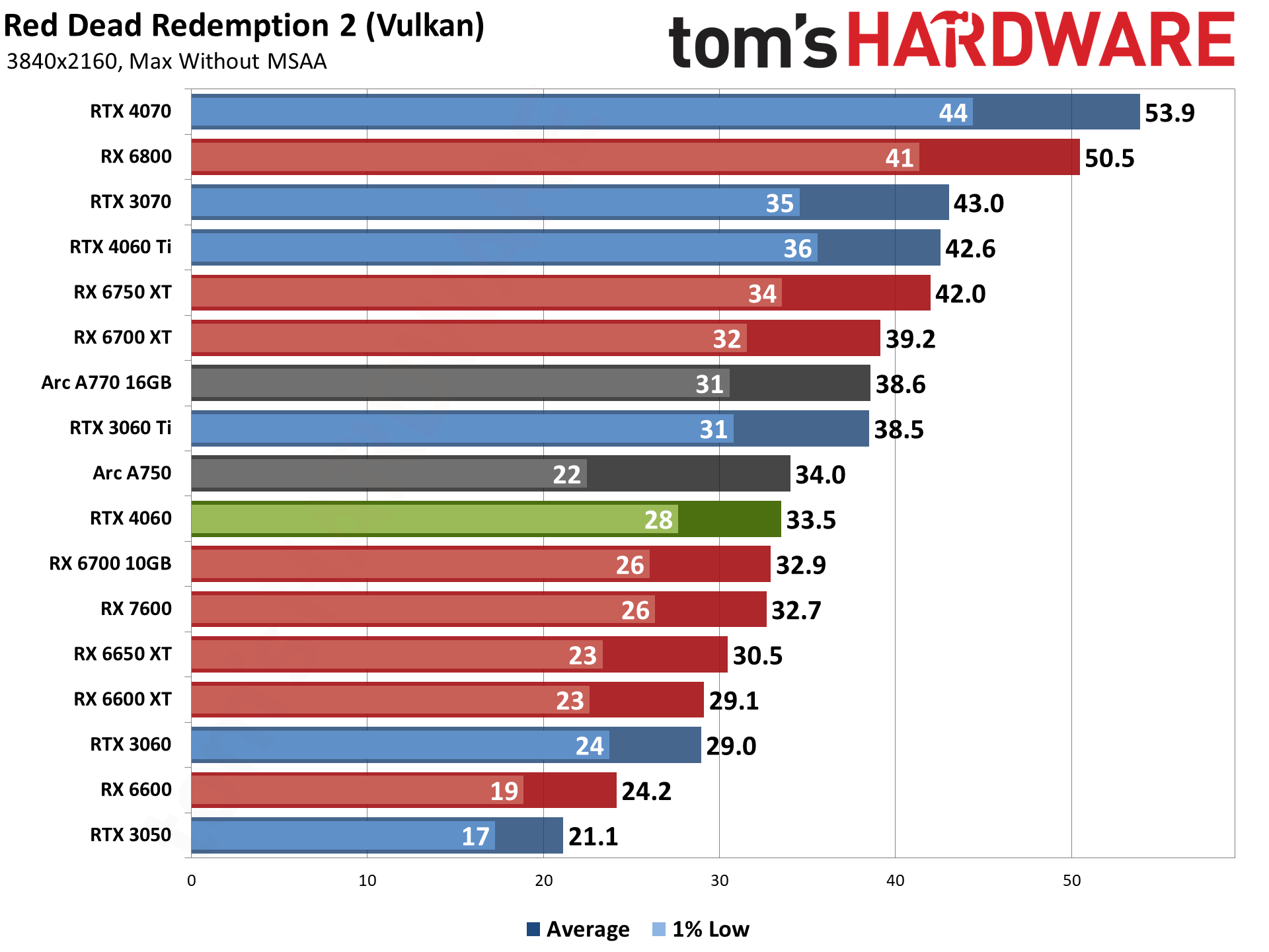
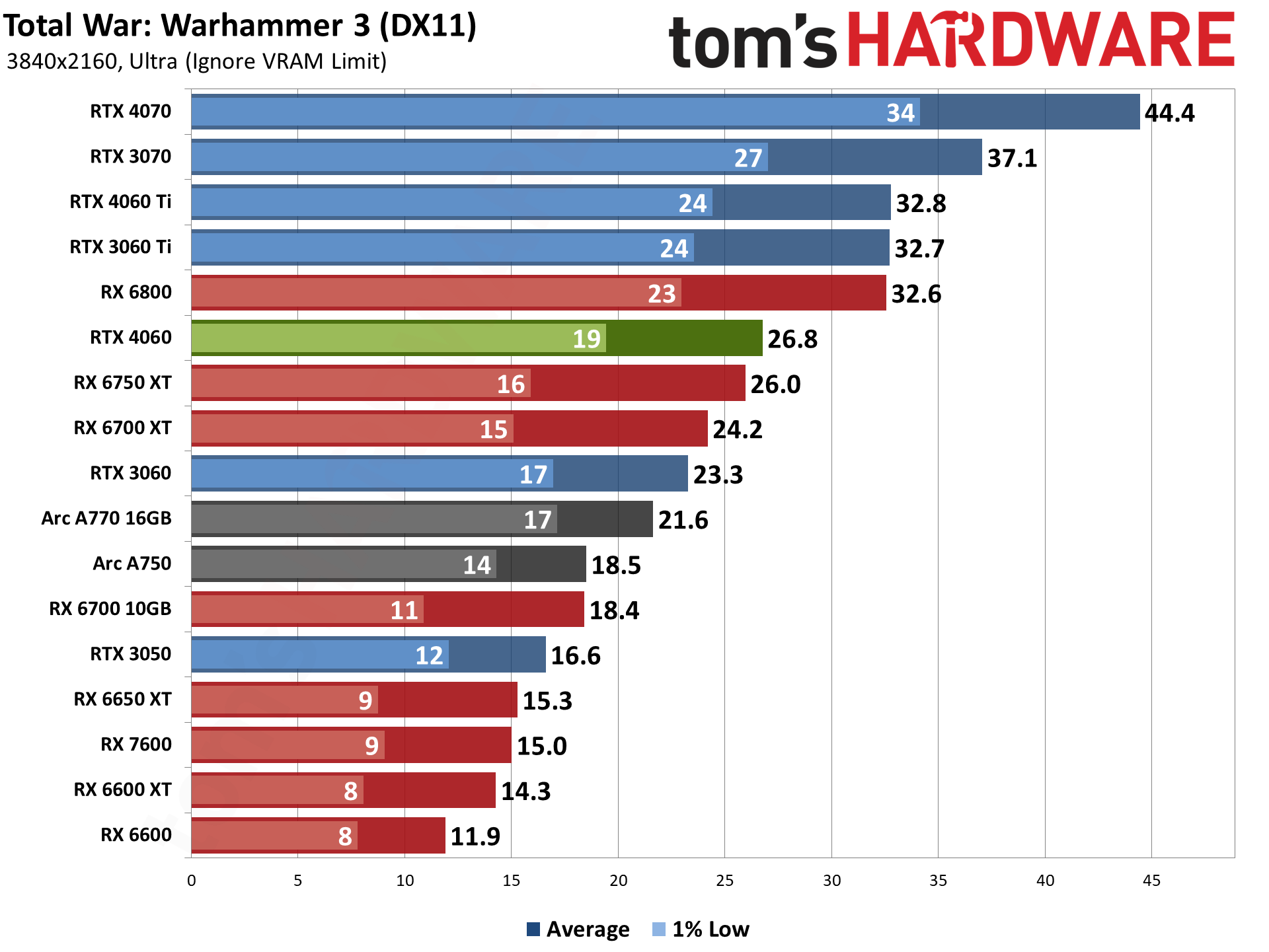
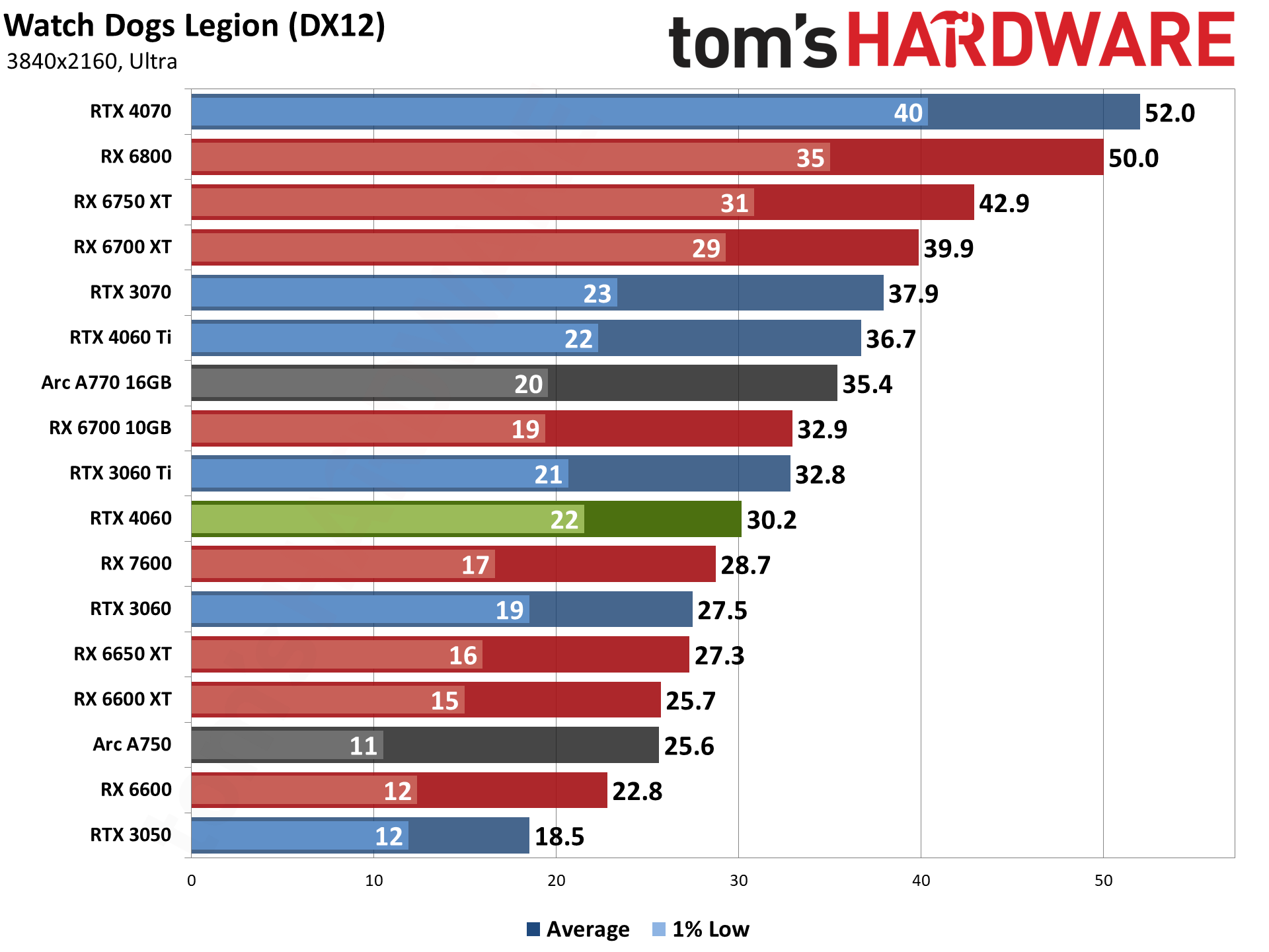
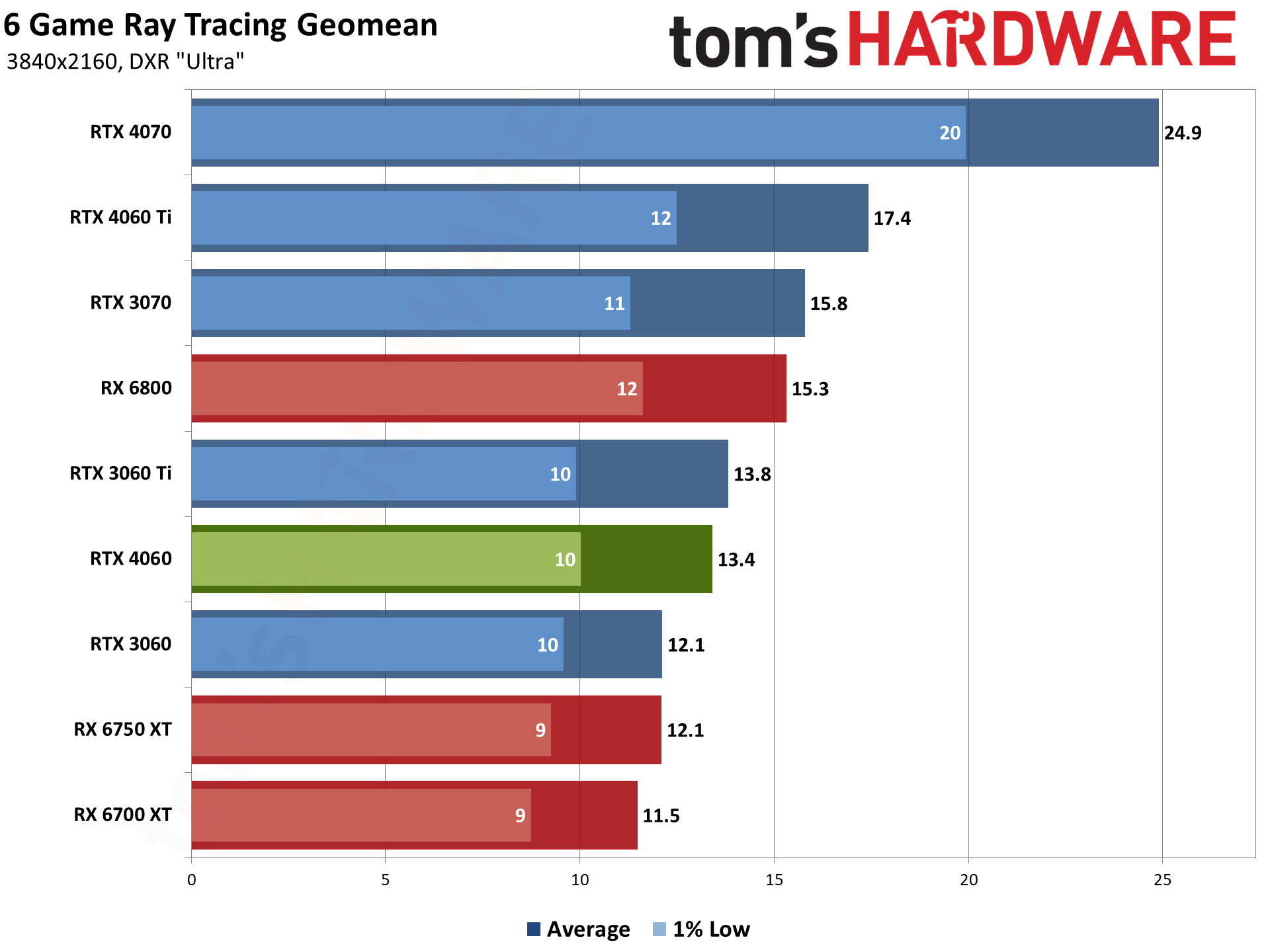
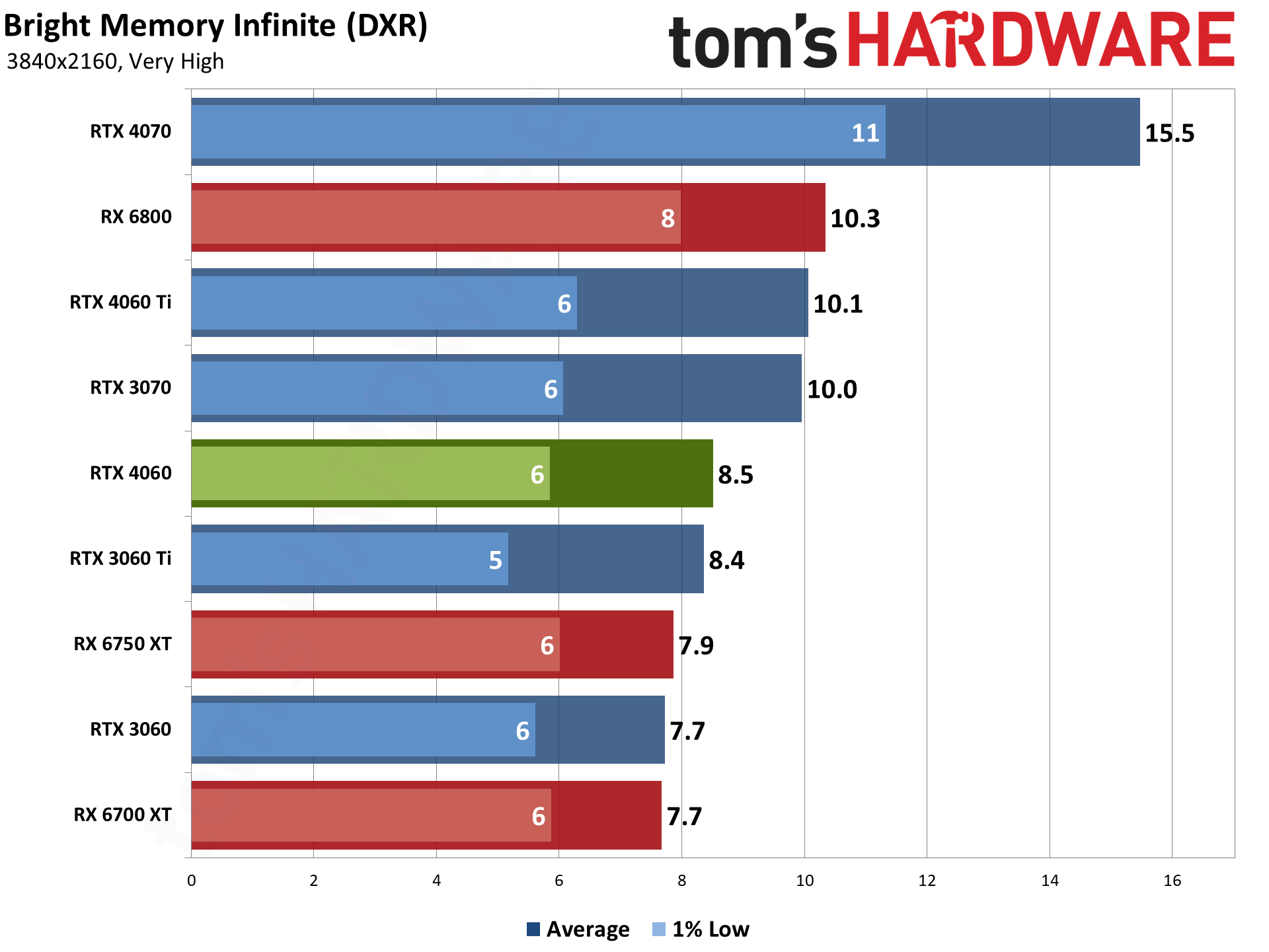
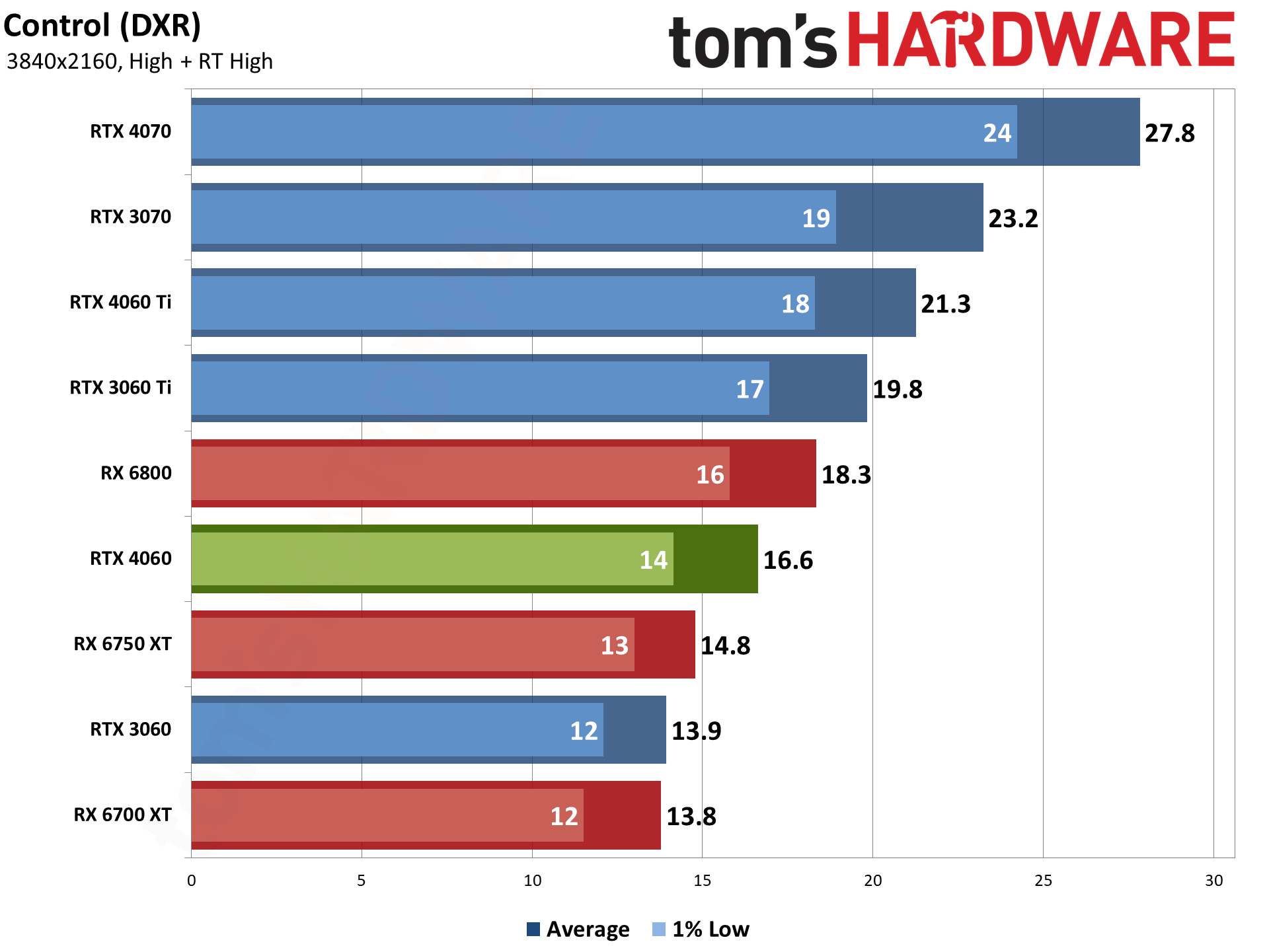
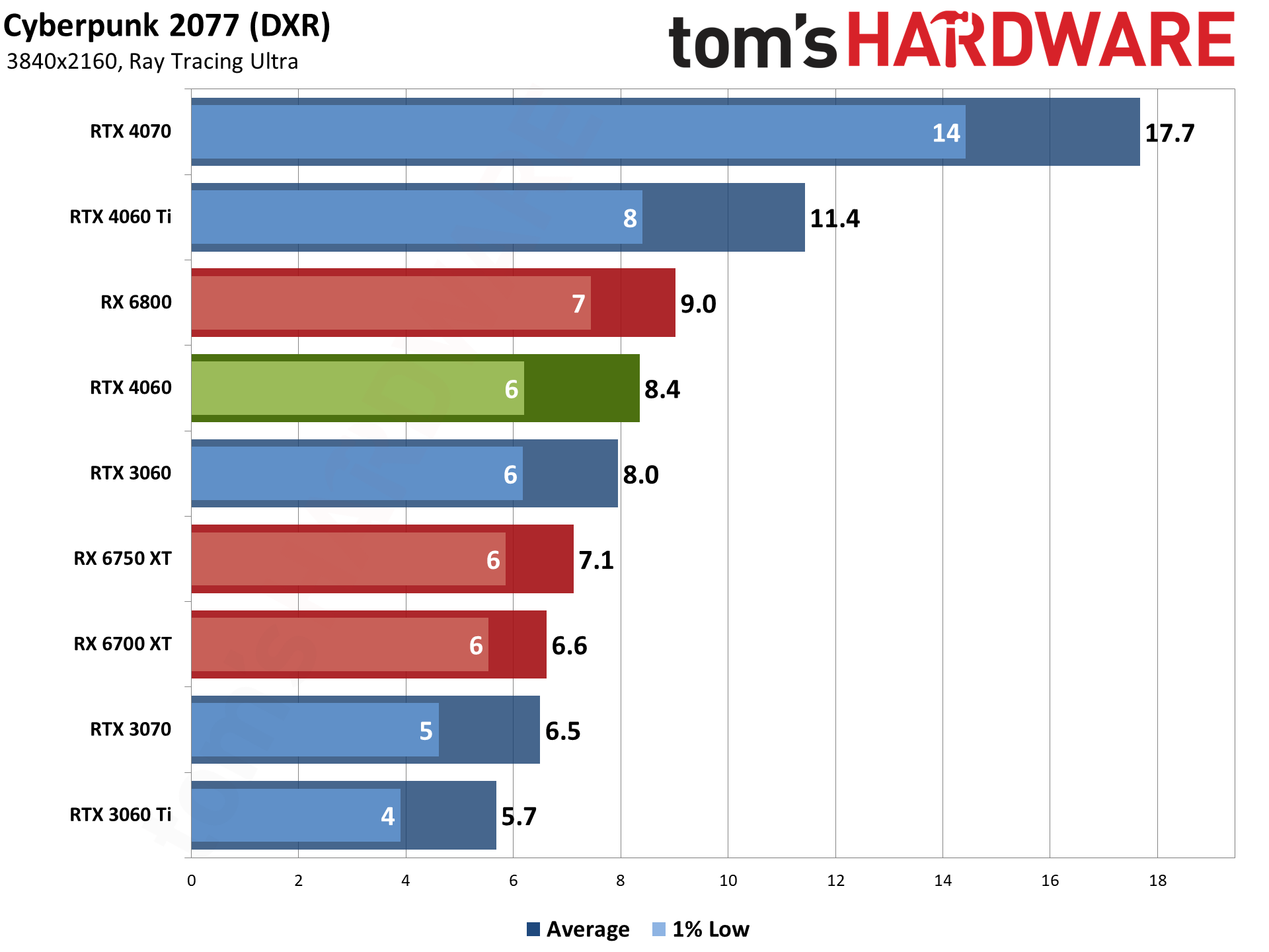
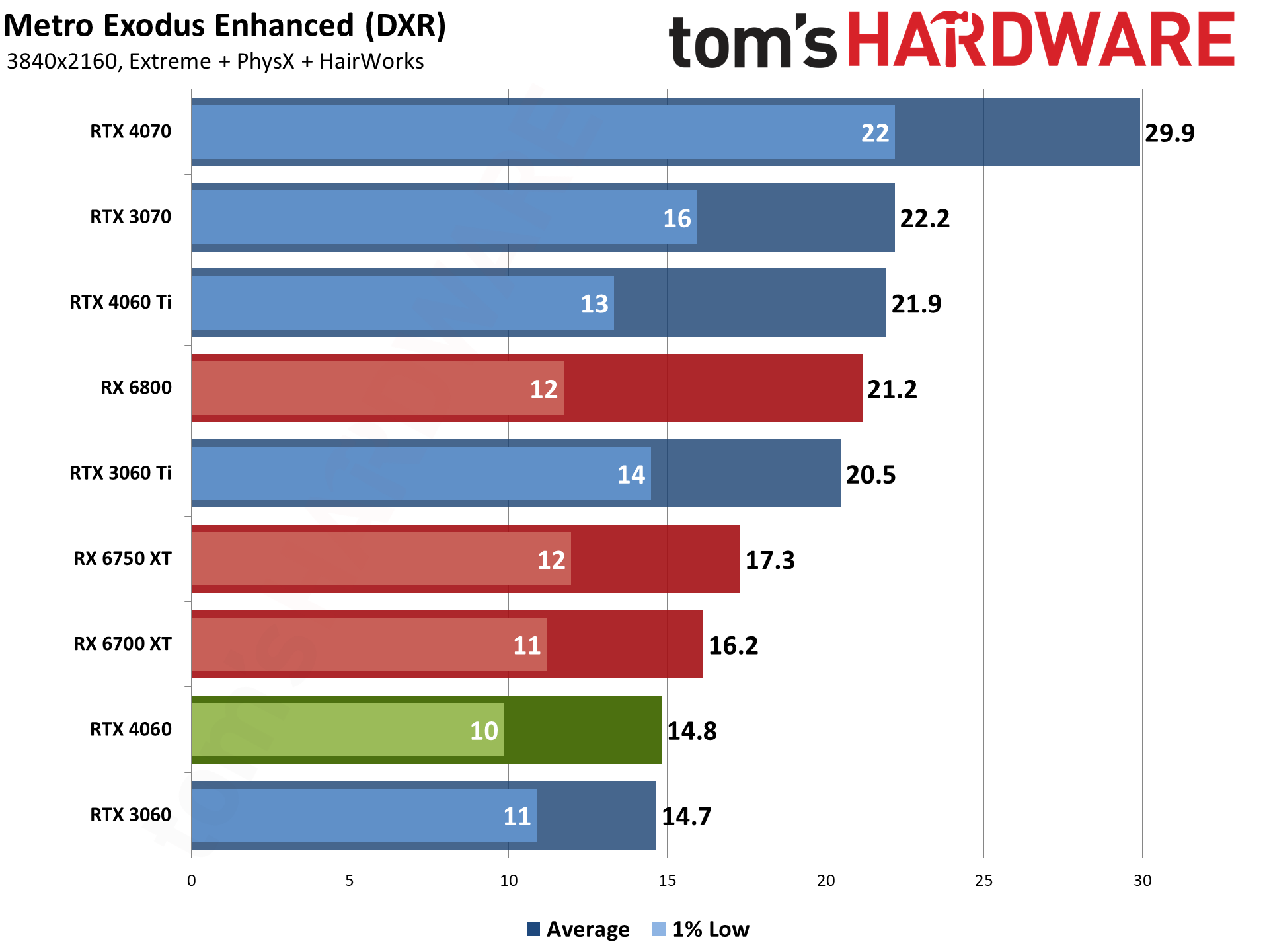
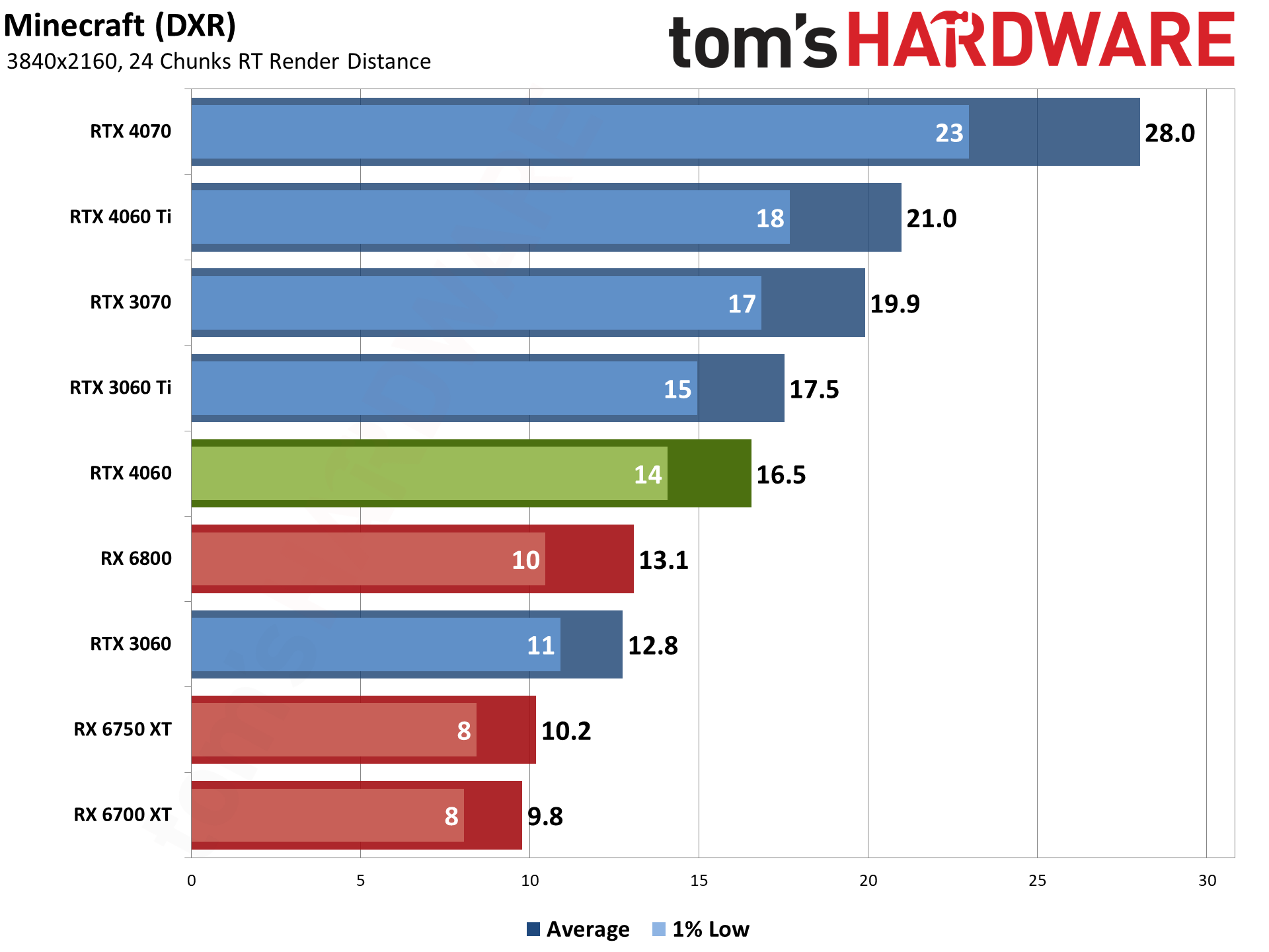
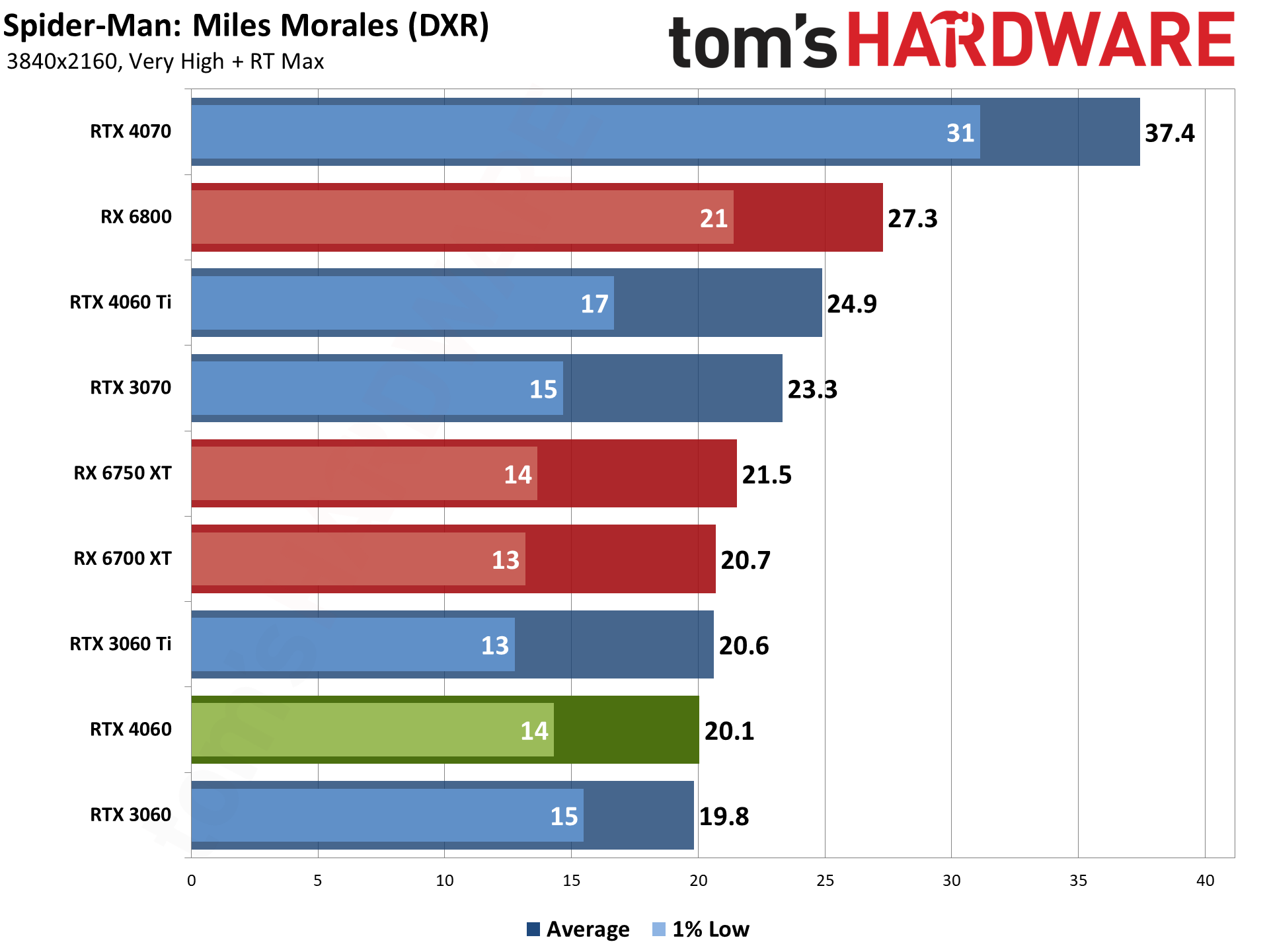
- MORE: Best Graphics Cards
- MORE: GPU Benchmarks and Hierarchy
- MORE: All Graphics Content
Get Tom's Hardware's best news and in-depth reviews, straight to your inbox.
Current page: Nvidia RTX 4060: 1440p and 4K Gaming Performance
Prev Page Nvidia RTX 4060: 1080p Gaming Performance Next Page Nvidia RTX 4060: Professional Content Creation and AI Performance
Jarred Walton is a senior editor at Tom's Hardware focusing on everything GPU. He has been working as a tech journalist since 2004, writing for AnandTech, Maximum PC, and PC Gamer. From the first S3 Virge '3D decelerators' to today's GPUs, Jarred keeps up with all the latest graphics trends and is the one to ask about game performance.
-
healthy Pro-teen Nvidia's marketing be like: In germany you could maybe save $132 over 4 years if you play 20hours/week due to energy costs compared to the 3060. That is hilarious and obviously the tiny 50 tier die is efficient lol.Reply -
tennis2 @JarredWaltonGPU I feel compelled to give you huge props for the stellar write-up!Reply
Only made it halfway through the article, so I'll have to come back when I have time to finish, but wow....there's so much good stuff here. I hope everyone takes the time to fully read this article. I know that can get tricky once the "architecture launch" article is done for a generation. It's nice to be able to learn some new things from a "standard" GPU review even after I've been reading reviews from multiple sites of every GPU launched for the past.....10+ years. -
lmcnabney The expectations for GPUs going back decades is that the new generation will provide performance in-line with one or sometimes two tiers above it from the prior generation. That means the 4060 should perform somewhere between a 3060ti and 3070. It doesn't. It can't even meet the abilities of the 3060ti. This card should not receive a positive review because it fails at meeting the minimum performance standard.Reply -
oofdragon Utterly crap.. can't even match a 3060Ti, but of course since that amazing accomplishment goes to the failure 4060Ti. Meanwhile anyone can get a 6700XT with 12GB VRAM for half the price. FAIL FAIL FAIL FAIL FAIL FAIL FAILReply -
Elusive Ruse Thanks for the review, however your test suite is outdated. You need to consider bringing a host of newer releases.Reply -
DSzymborski Replyoofdragon said:Utterly crap.. can't even match a 3060Ti, but of course since that amazing accomplishment goes to the failure 4060Ti. Meanwhile anyone can get a 6700XT with 12GB VRAM for half the price. FAIL FAIL FAIL FAIL FAIL FAIL FAIL
You're comparing a used GPU to a new GPU. That increased risk is a fundamental difference which has to be addressed in any comparison. -
Elusive Ruse Reply
You can get a new one around $310-$320DSzymborski said:You're comparing a used GPU to a new GPU. That increased risk is a fundamental difference which has to be addressed in any comparison. -
DSzymborski ReplyElusive Ruse said:You can get a new one around $310-$320
He's literally quoting $200 above as his point of comparison. That's a used card. -
randyh121 Reply
lol the 6700XT is nearly 500$ and the 4060 runs betteroofdragon said:Utterly crap.. can't even match a 3060Ti, but of course since that amazing accomplishment goes to the failure 4060Ti. Meanwhile anyone can get a 6700XT with 12GB VRAM for half the price. FAIL FAIL FAIL FAIL FAIL FAIL FAIL
keep lying to yourself amd-cope
